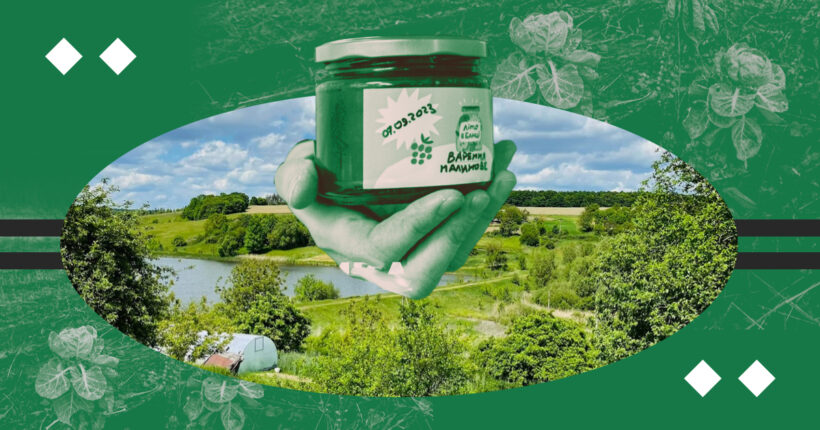
What is the problem?
The village lifestyle has recently become appealing to many townspeople when they, mostly during the summer, move from the suffocating concrete walls to the country. However, despite the overpopulation of cities, polluted air, and other stressful factors, people are in no hurry to move to the villages en masse permanently because not everyone is ready to face the challenges there: unemployment, lack of infrastructure, and cultural events.
However, the village has the potential for green tourism. It can become a place of non-formal education, a space for rehabilitation, and a place where people can live quietly with their families. For the heroes of this story, the countryside has become not a trend, but a conscious choice. They have been living here for about 13 years and are implementing changes at a separate initiative group level.
What is the solution?
There are three ways to get to the Kyiv region's village of Dmytrenky — get on the bus that runs twice a day, drive your own car, or ask local taxi drivers waiting for visitors at the bus station in a nearby city of Bohuslav.
The village is full of empty houses. Some have not seen people and are bending to the ground little by little. However, there are some new toys scattered across the playground, indicating that children often use it.
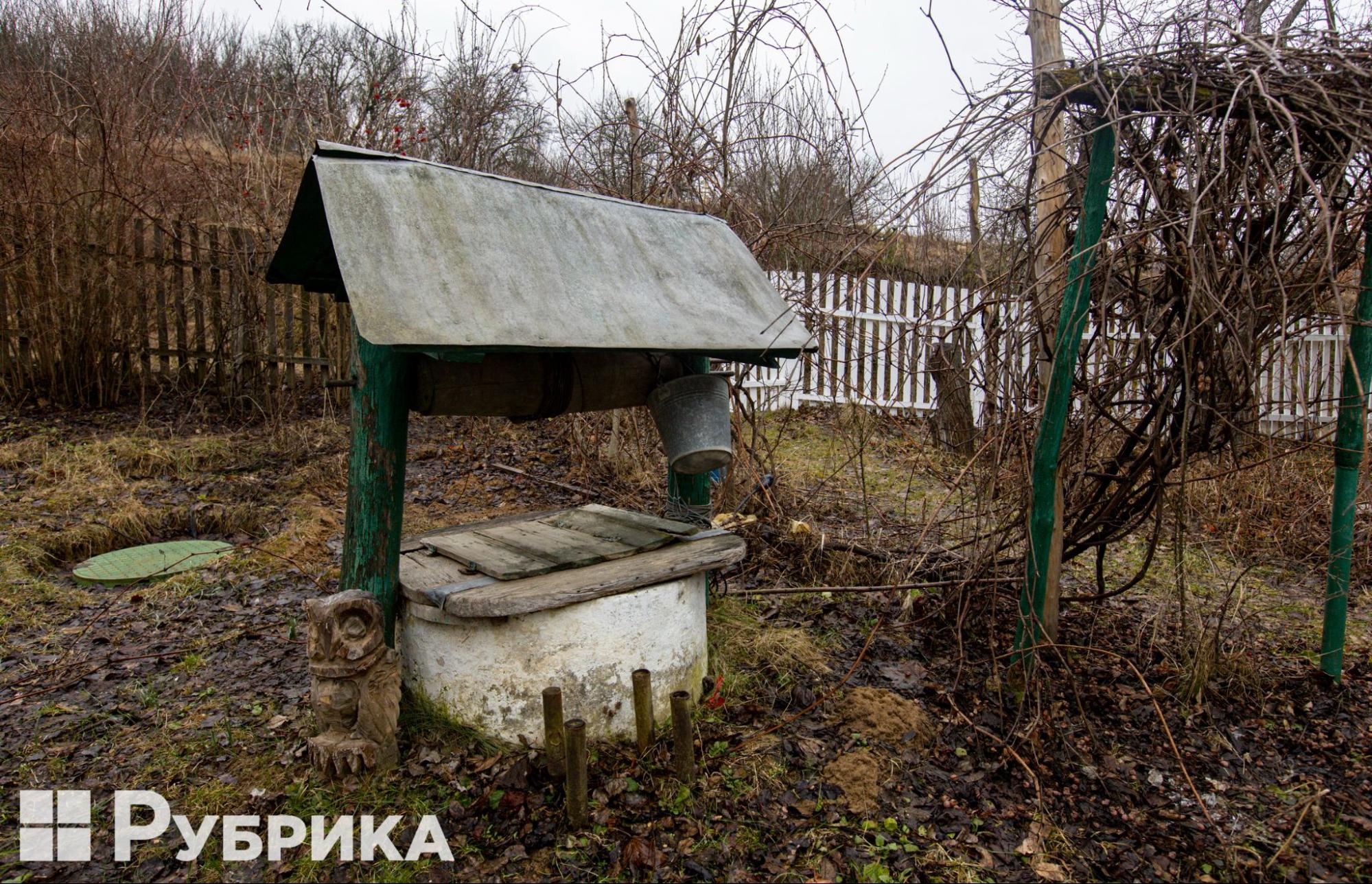
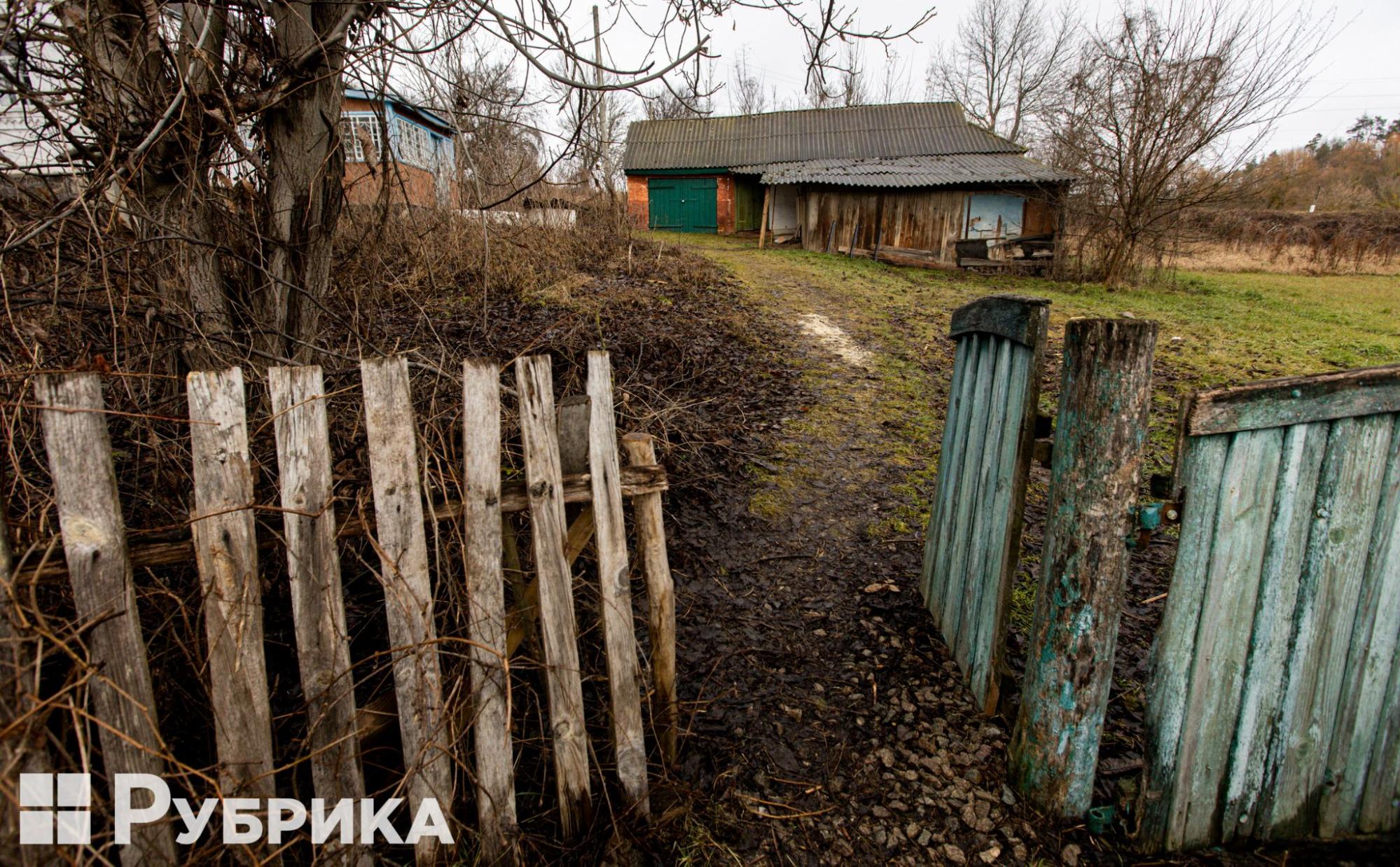
Young families living in Dmytrenky and nearby villages gave one of the houses a new life: they plastered the walls, piped water, equipped it, and filled it with children's laughter. Only one thing distinguishes them from locals — they were not born here but consciously decided to move from the cities to the village and create a joint eco-settlement.
New residents buy homes and adjust them to suit their needs, and the locals help them arrange their own homes. For the most part, the founders of an eco-community create it based on an already existing rural area and build a common life in it. Guests and new residents find the community through social networks when searching on Google or the advice of acquaintances. Families live in their own houses but build a separate guest house for joint feasts and rest, gatherings of all residents, and spending time together. Here, the families decide by a unanimous vote whether to accept newcomers into the community. The community invests a lot of time and effort in solving internal conflicts.
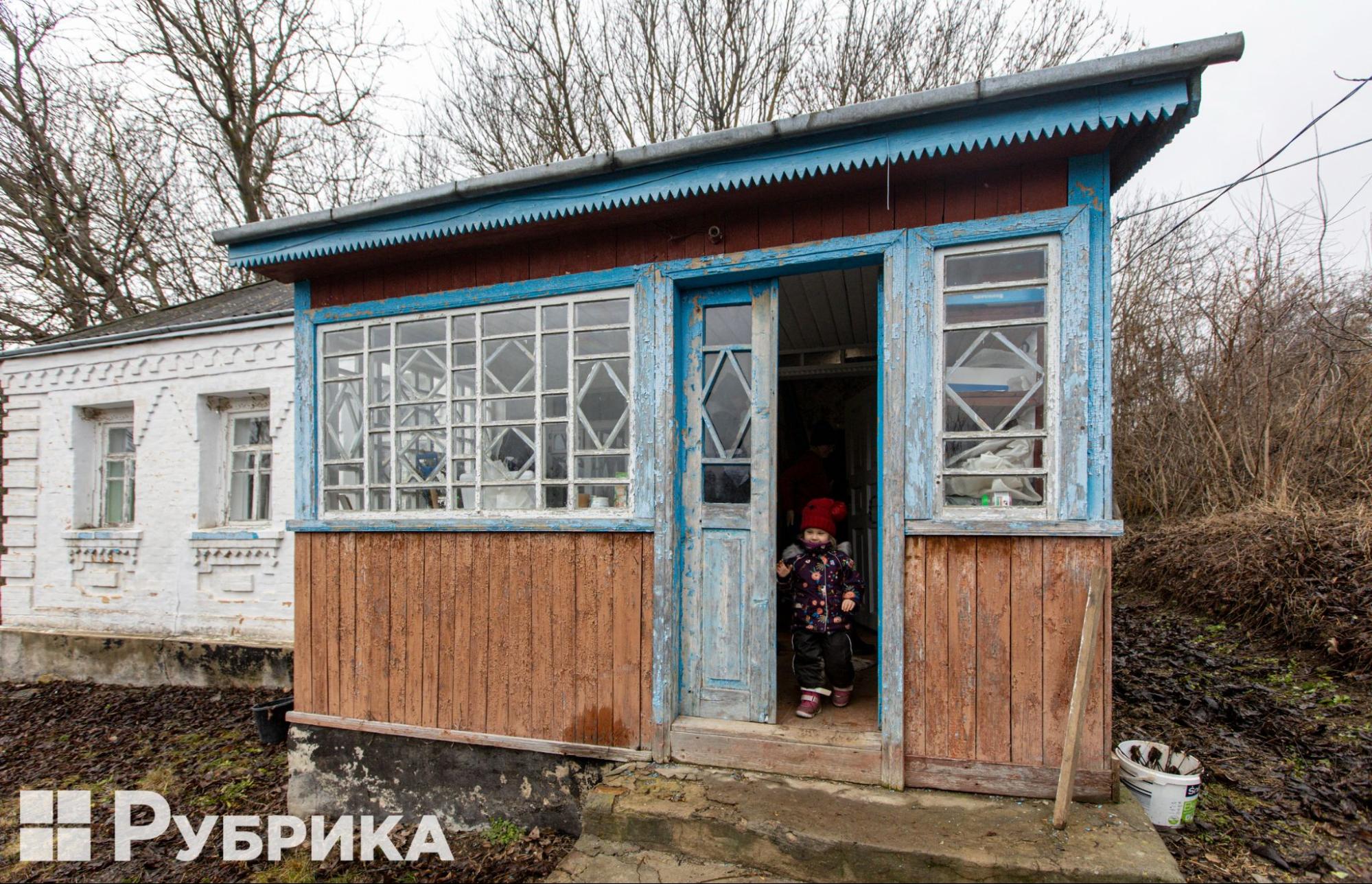
"There is wild freedom in the village that feels so good"
In 2011, Anastasia Volkova and her husband Serhii moved step by step from Kyiv to the village. The couple wanted to grow organic food and understood that they needed to look for like-minded people. Like-minded people were found not only in Ukraine but throughout the world. The couple found them in ecological communities, particularly in the Zeleni Kruchi eco-settlement in Dmytrenky village.
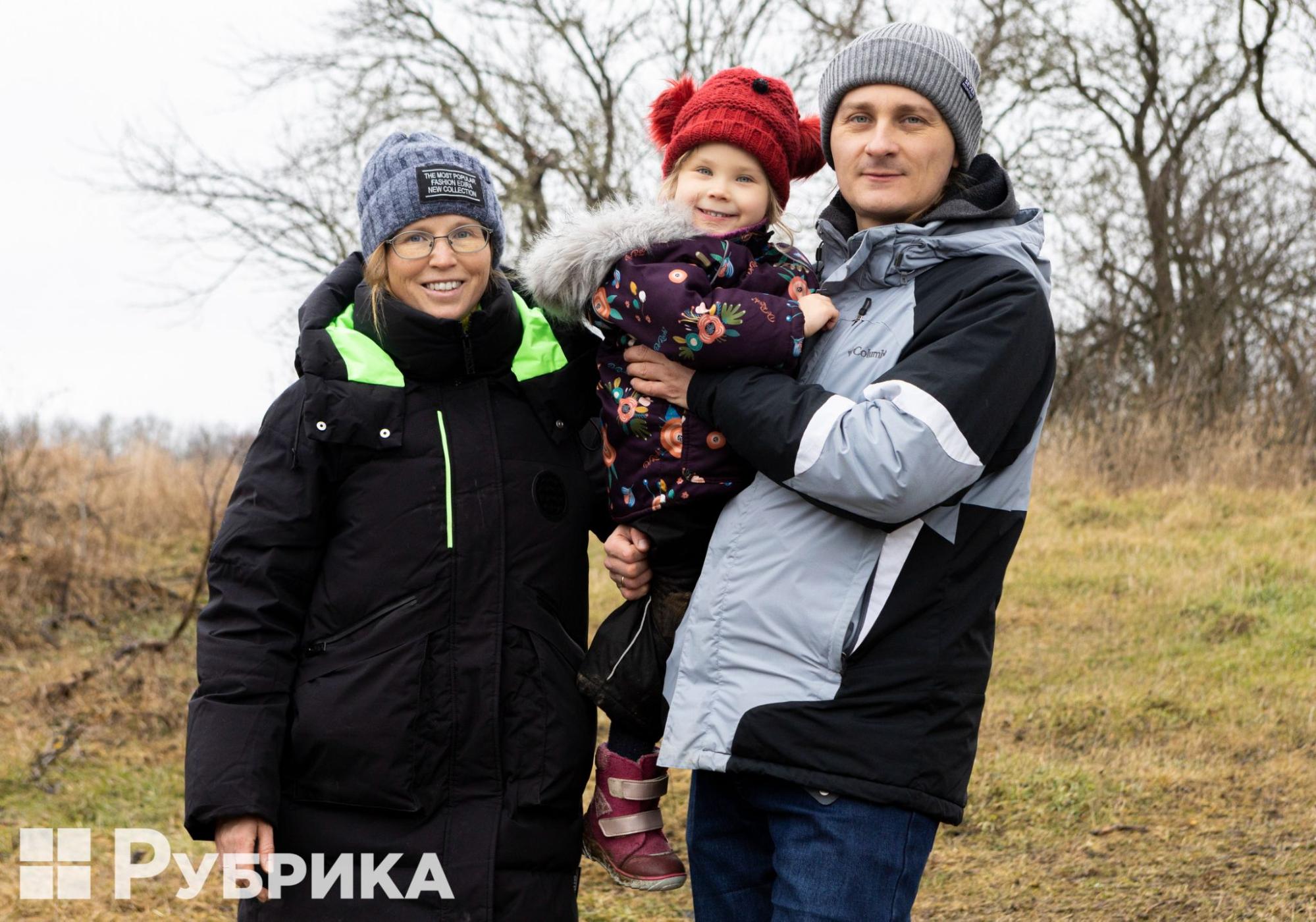
The Volkov family.
An eco-settlement is a community of people who consciously choose to move to the village. They are united by common values: a healthy lifestyle, caring for nature, and spiritual development. In 2018, the Zeleni Kruchi eco-settlement in Dmytrenky joined many other Ukrainian ecological communities in the NGO Global Network of Eco-Settlements of Ukraine.
People deliberately refuse to live in the city for various reasons: some decide to grow their vegetable garden, some are tired of the noisy city and want to be closer to nature, and some move to a quieter settlement for the sake of their children.
Another resident of Zeleni Kruchi, Viktoriia, says that she moved there first because of an inner push for spiritual development and later because of a desire for freedom.
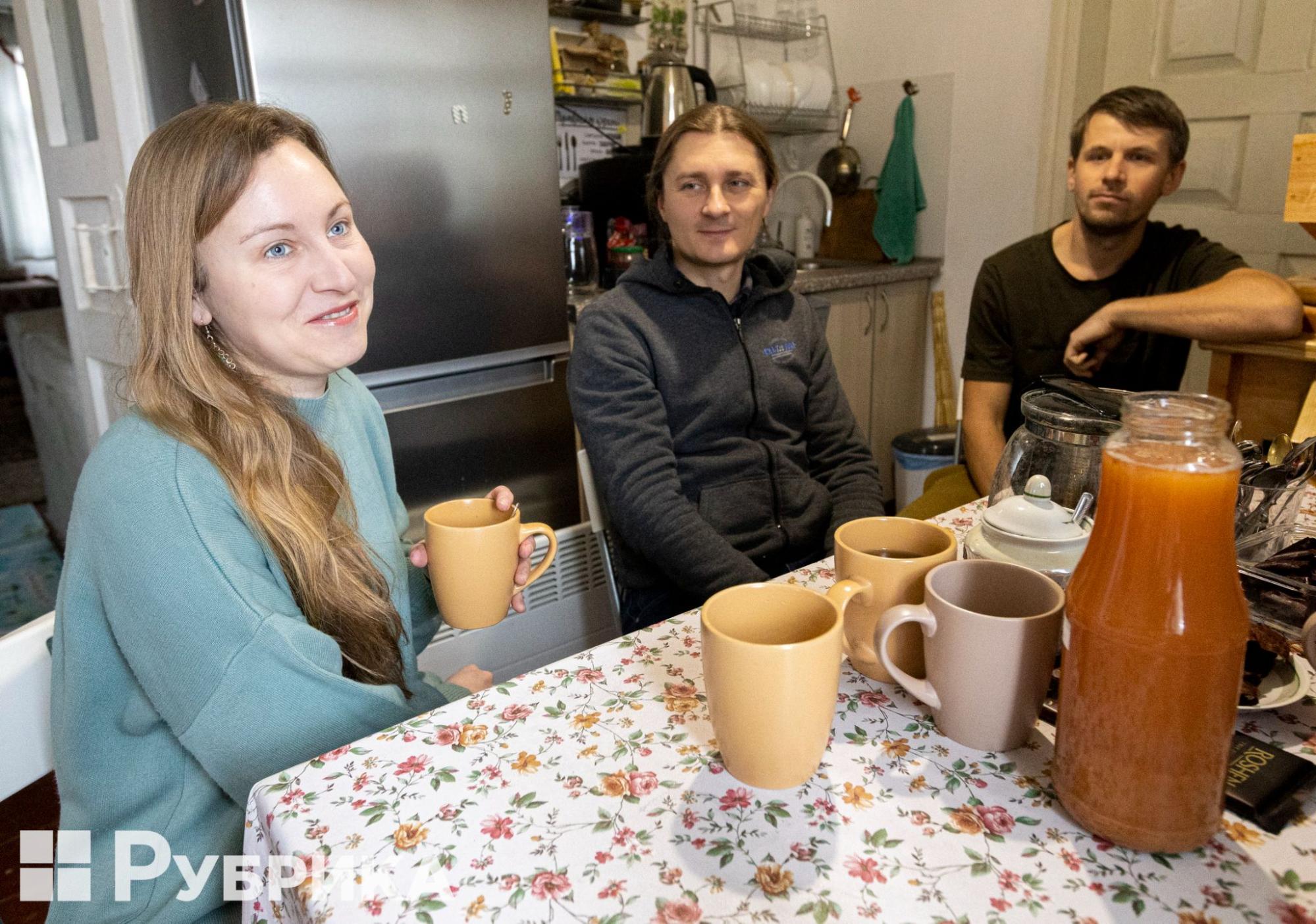
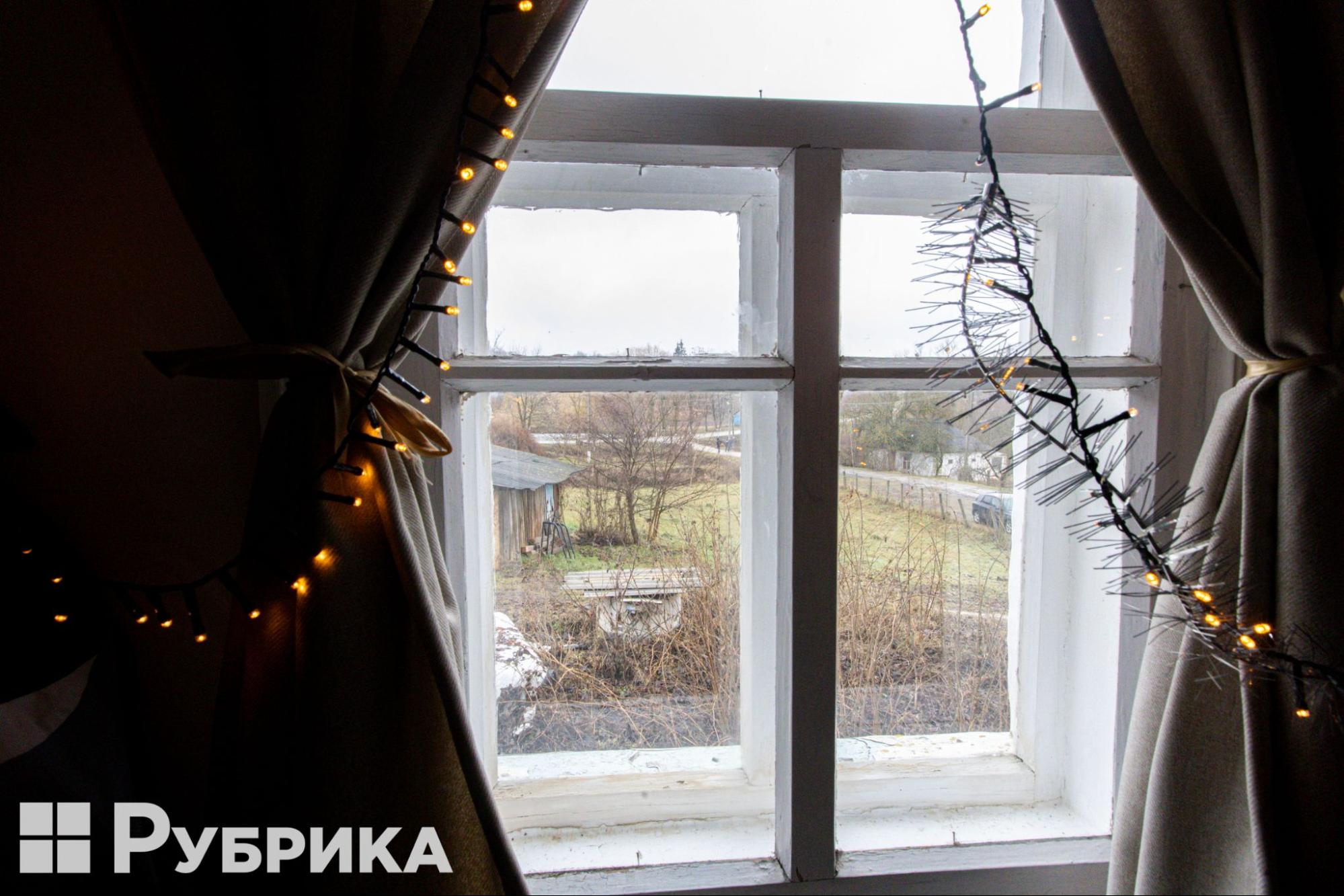
"Wild freedom here feels so good," Viktoriia says with passion.
Viktoriia says that not everyone understands her desire to stay in the village, but for her, it is about the opportunity to find peace.
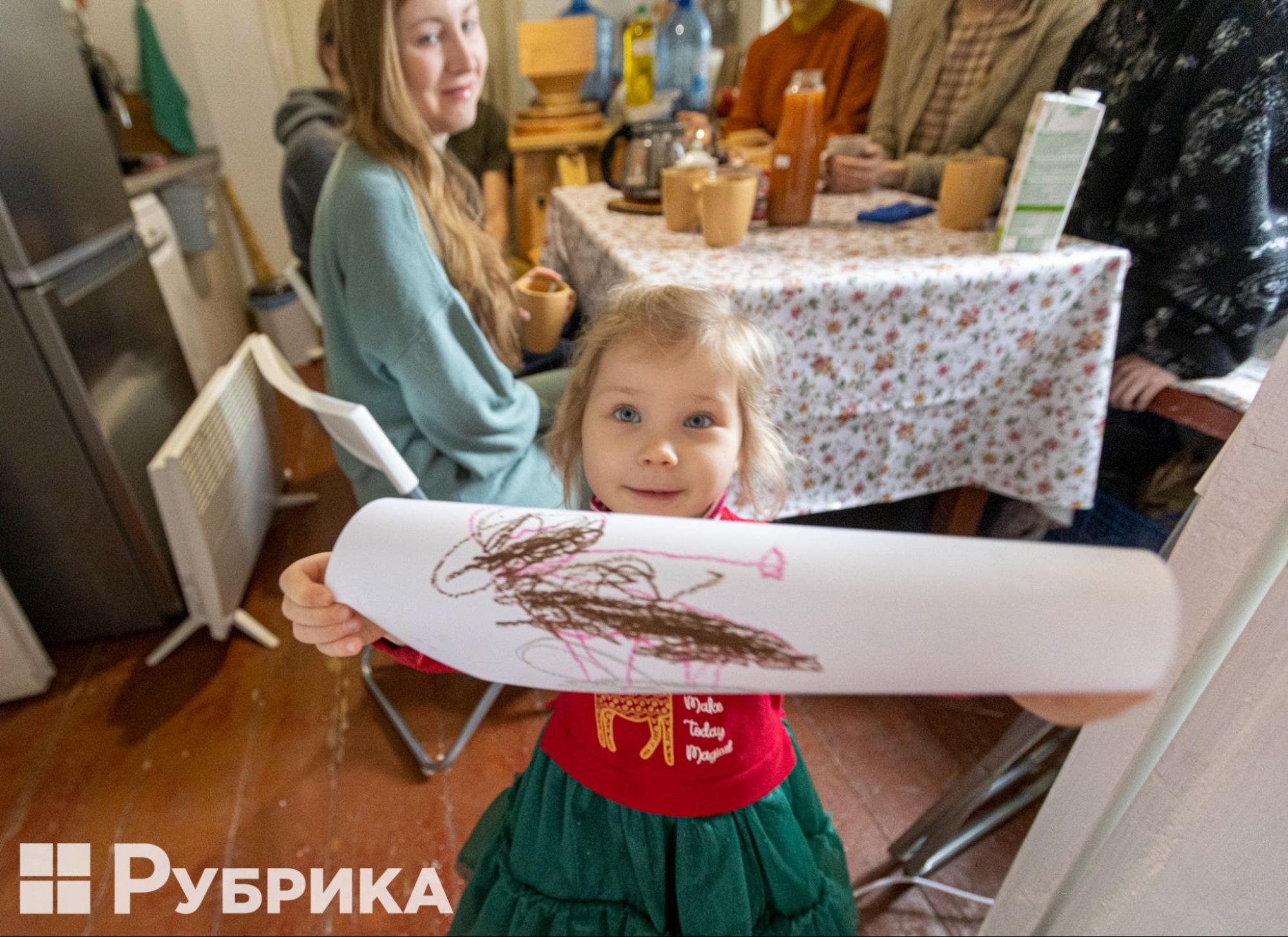
The Volkov family shares that they have to walk 2.5 km to the school bus stop, but this isolation also has advantages. During the coronavirus epidemic, city dwellers were isolated, while the village dwellers didn't feel it so acutely.
How does it work?
"When the full-scale invasion began, we looked for a safe place and realized that we found what we were looking for"
However, the war affected everyone, including Zeleni Kruchi. Many Ukrainians arrived there, looking for a safe haven. Some stopped for a while and drove on, while others liked the village and its life. Oleksii and his wife were among them.
The couple says that they did not plan to stay for a long time, but they changed their plans and have been residents of the eco-settlement for the third year already: "When the full-scale invasion began, we were looking for a safe place and realized that we had found what we were looking for."
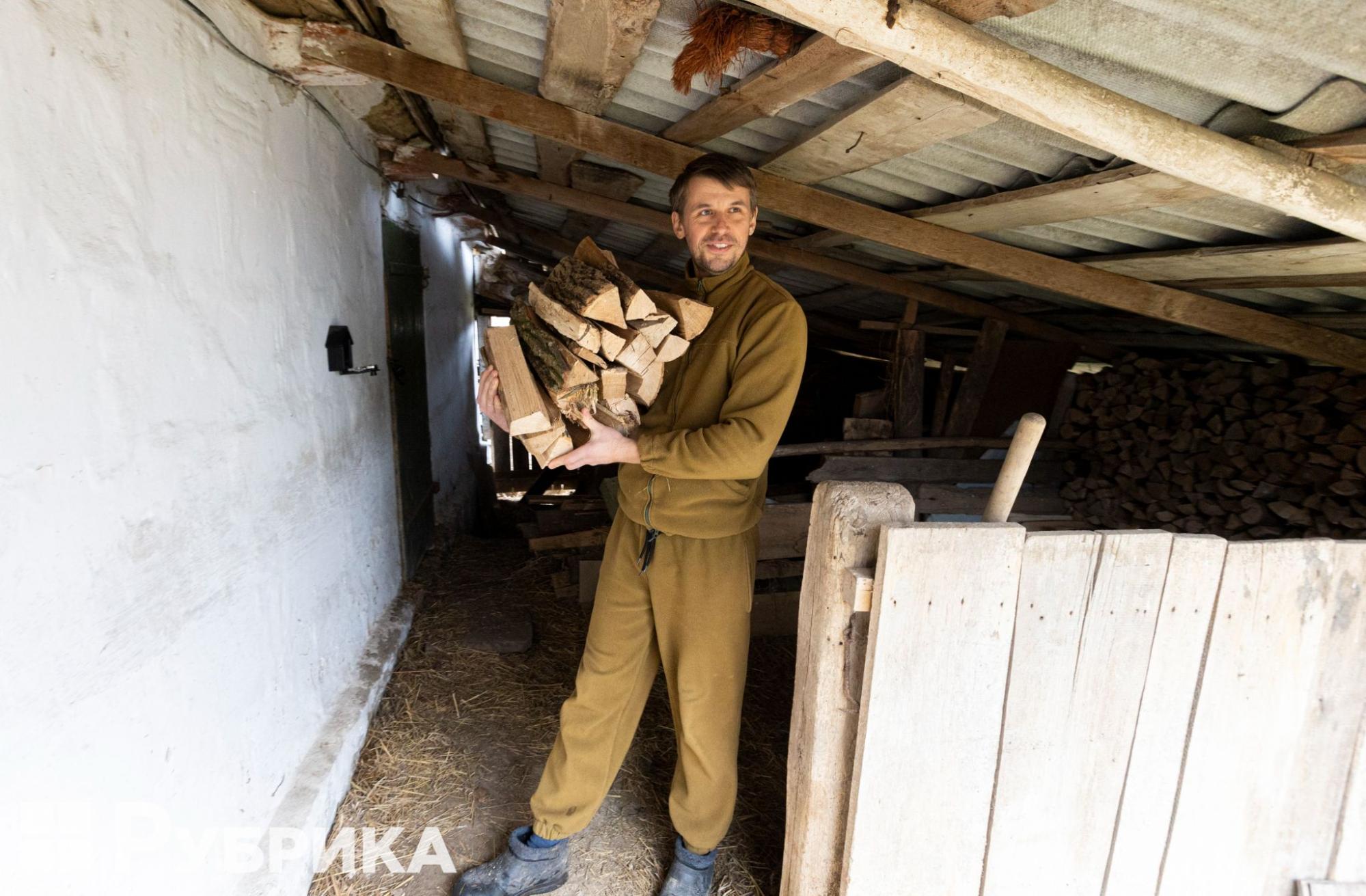
Oleksii.
Eco-settlements throughout Ukraine accommodated displaced persons, furnished houses for them, and created programs for the psychological recovery of civilians, military personnel, and volunteers. Volkov adds that the full-scale invasion highlighted the resilience of eco-communities:
"We felt protected, in a rather comfortable bubble, because we had mutual support within and between communities. We felt a big difference when we went to the outside world, especially in the first months, and saw how tense everything was. Here, you know that you are not alone and will not be alone in trouble."
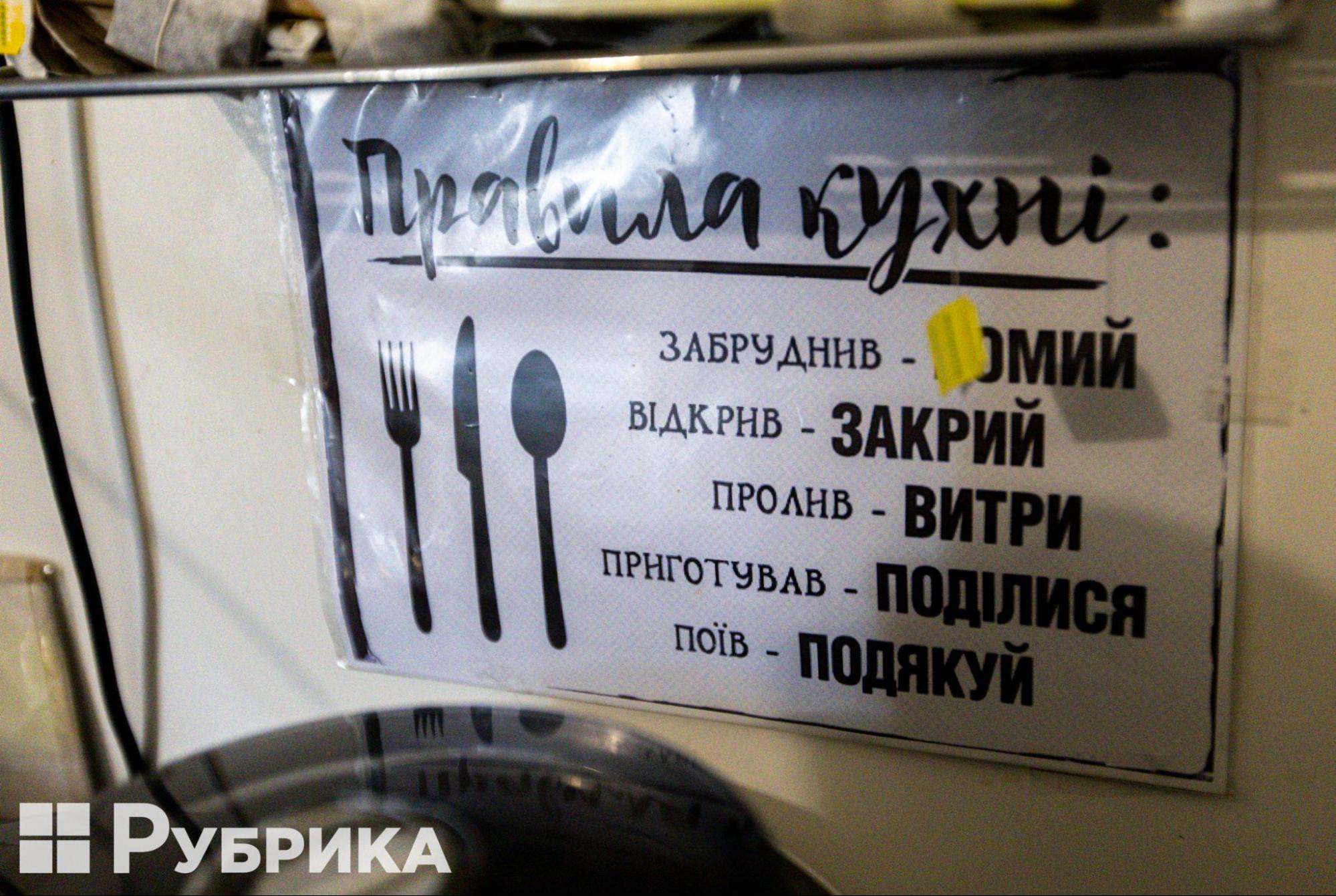
Mutual development of the village and the ecological community in it
Residents of eco-villages say that the locals at first distrusted them and perceived them as weirdos. It is hard for people to believe that someone consciously chooses to live in a village. However, eco-settlement is a solution that can help small settlements revive.
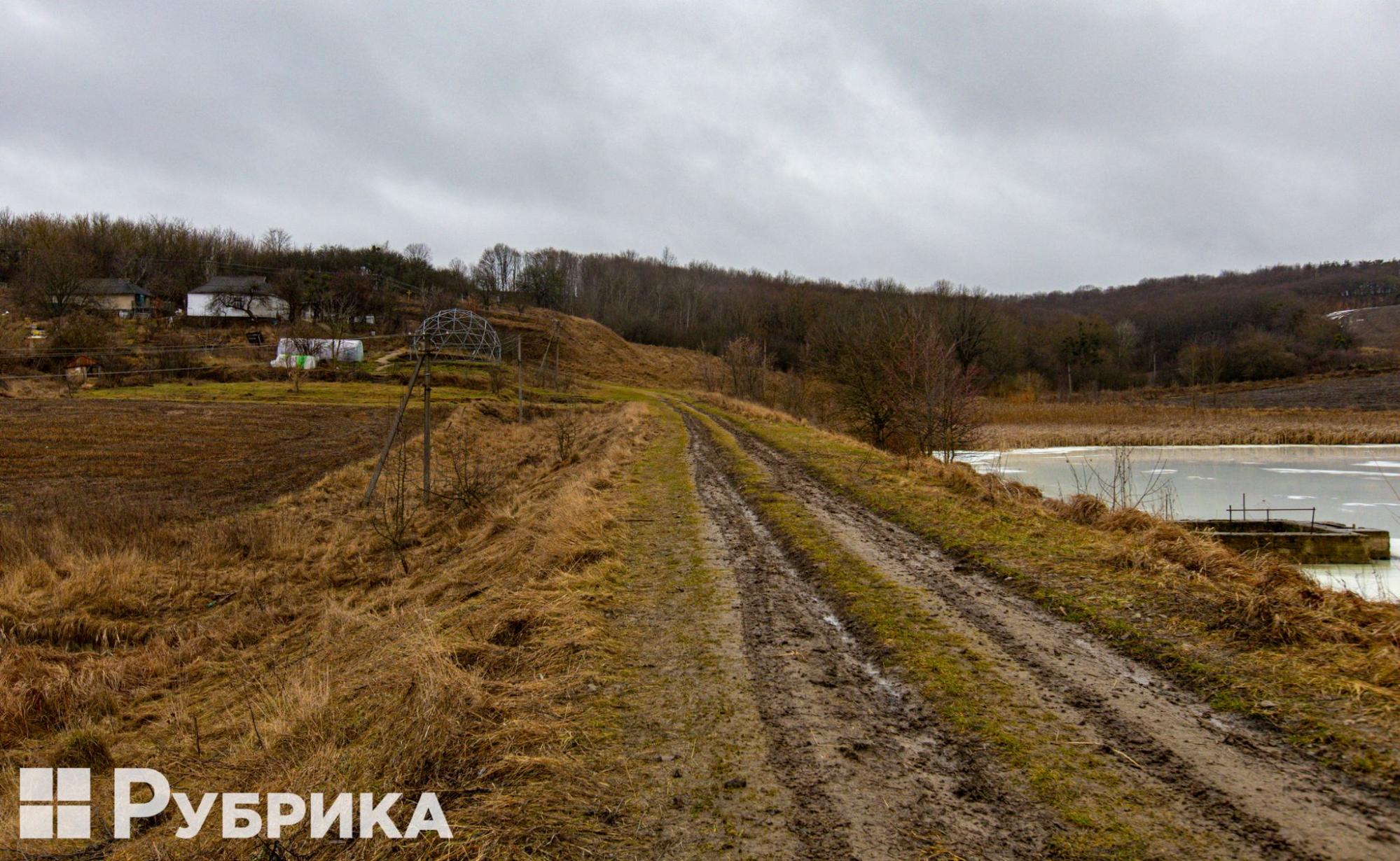
Dmytrenky village.
Young people, who come with whole families, strive not to put up with uncomfortable conditions but to improve the village, cooperate with the community, and involve it in projects. The highlight was the Caravan of Artisans — a creative event for children with quests, master classes, games, and goodies held by the residents of eco-villages. Children could try their hand at pottery, bead weaving, archery, drawing, and other activities.
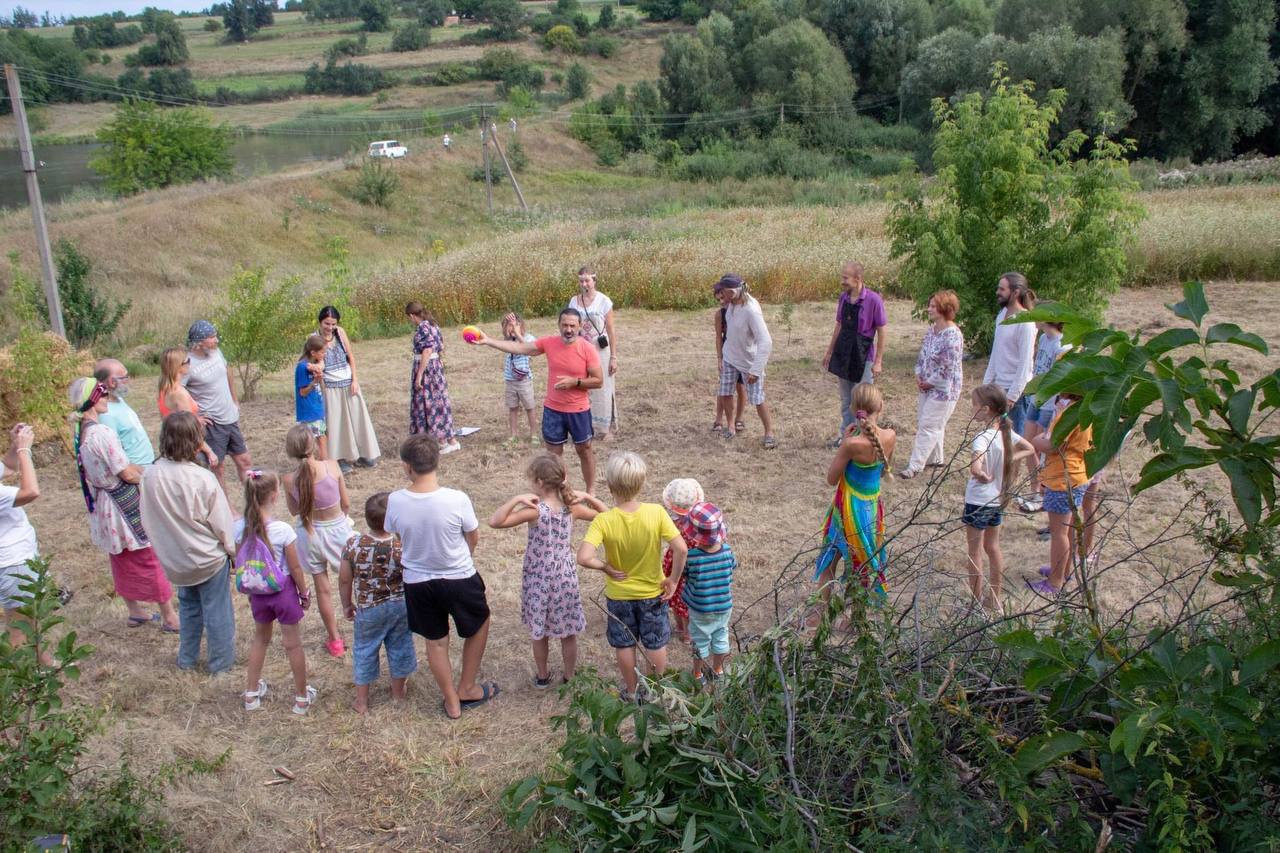
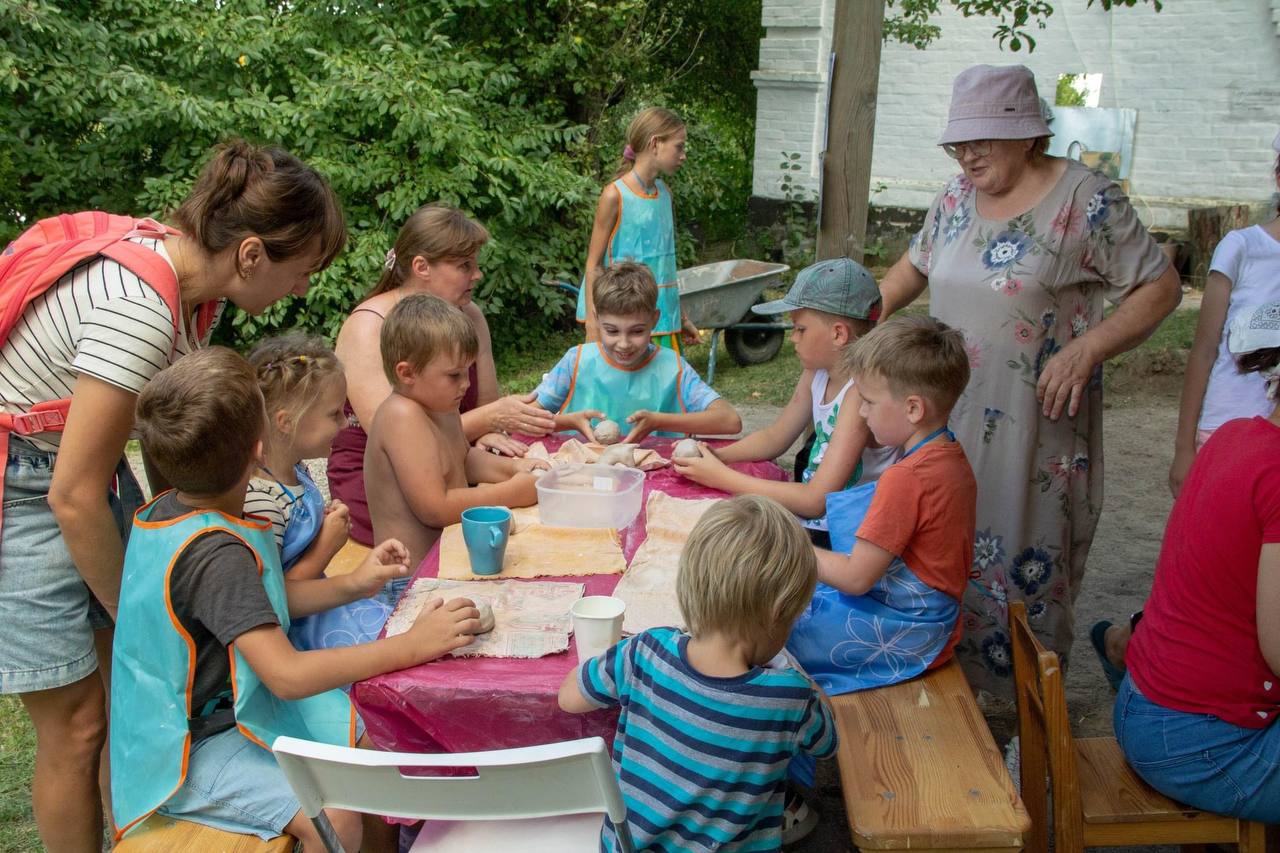
Caravan of Artisans. Photo: FB
Zeleni Kruchi also cooperated with the Tolokar project, thanks to which four bicycle parking spaces were built in the village, five bicycles were used, and a bicycle workshop was provided. Here, they now help fix bicycles for the residents of the community.
Volkov adds that there are plans to organize film screenings in a local club and to form cooperation with locals in the environmental field. However, the second idea remains a dream, and they are moving gradually. "Every spring, we clean the pond and collect huge garbage bags. It's very unpleasant when you see how people come to rest and litter again," says the resident.
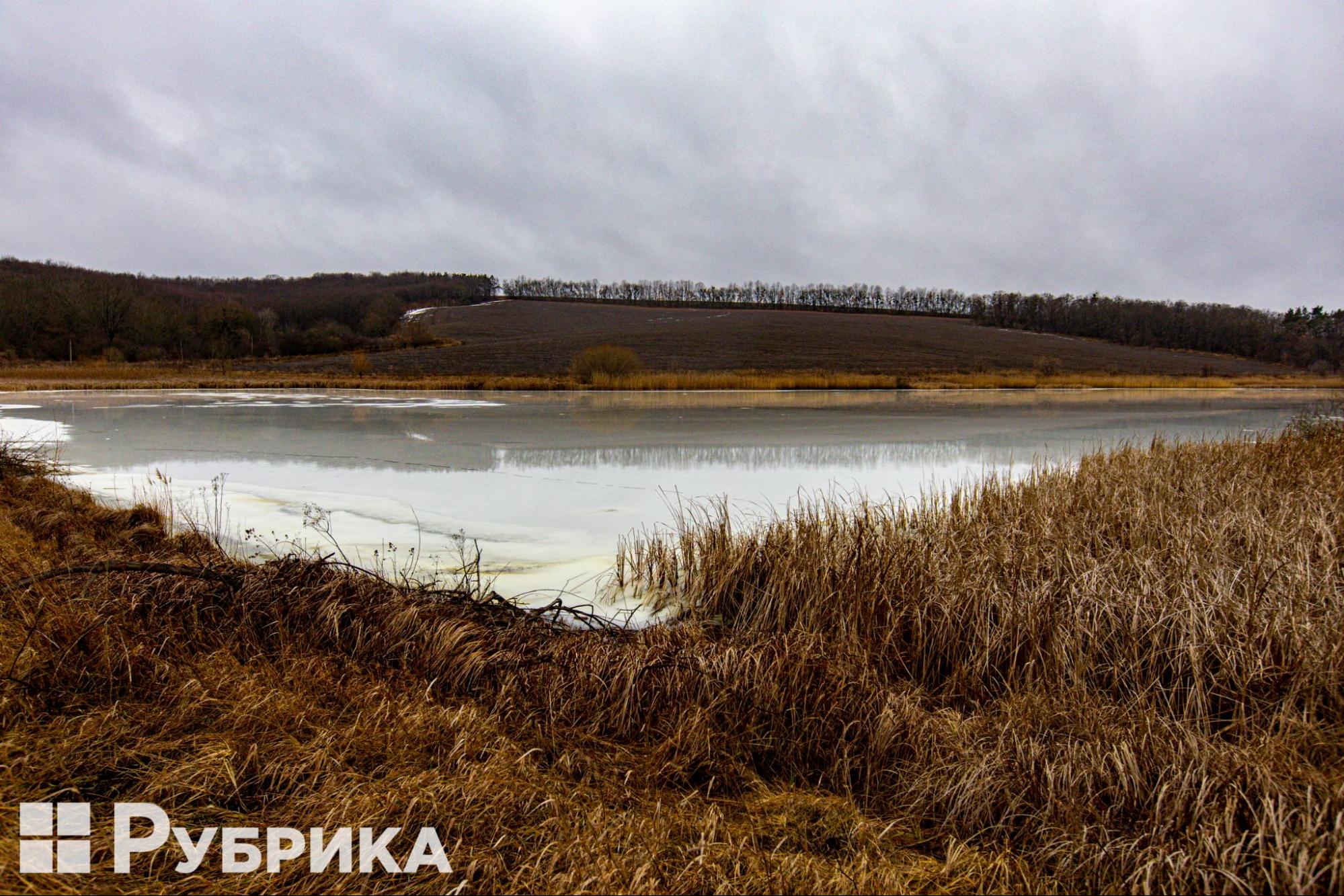
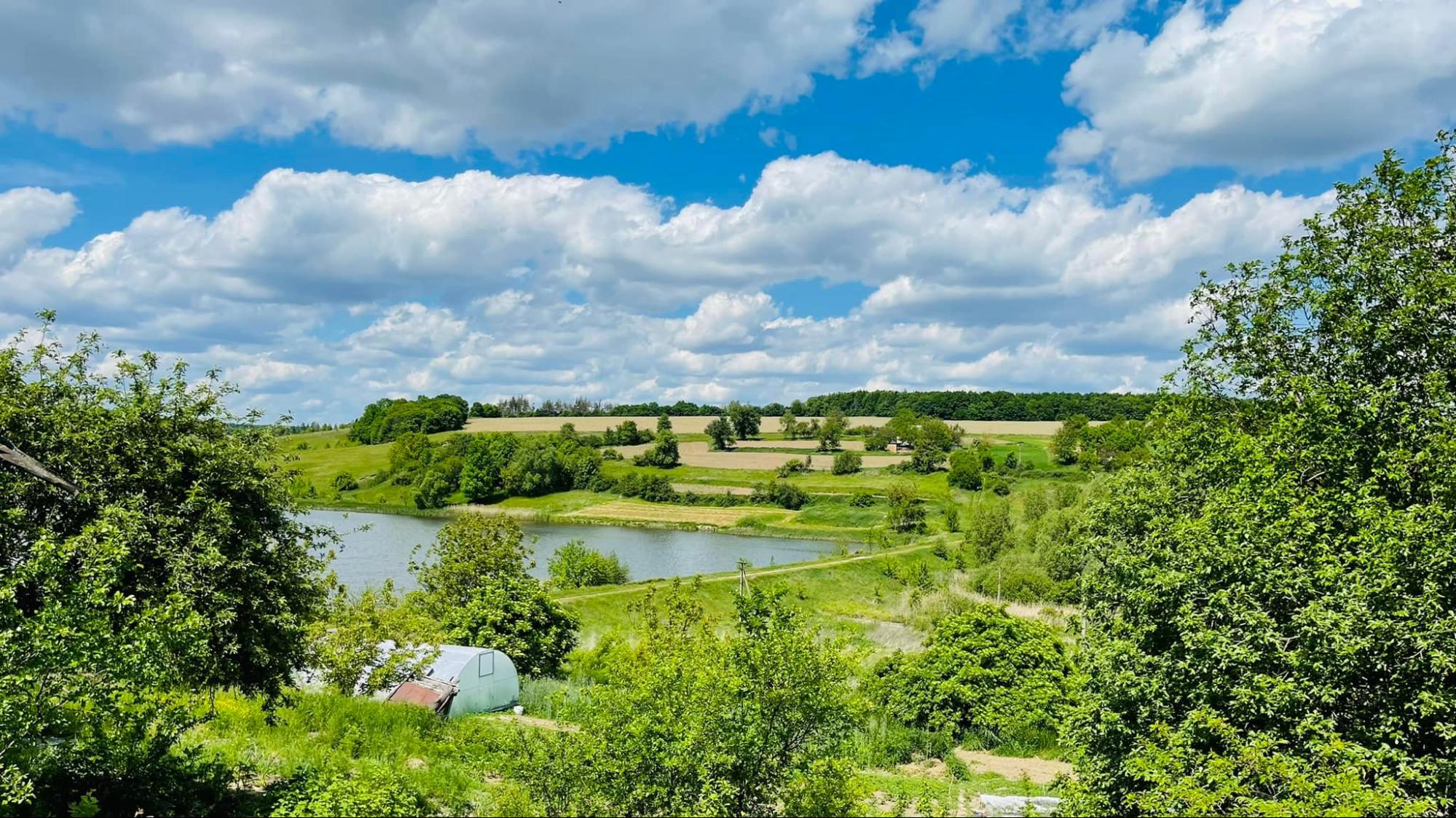
Village in summer. Photo: FB
Small business in the village
Another problem is the practical absence of business in the village and, as a result, the lack of opportunities for earning. People come out of this problem in different ways: they work remotely, travel hours to work in the city, buy cars so as not to depend on public transport, or look for part-time jobs in nearby villages.
Residents of the eco-settlement also found their solution — to monetize what they came here for — grown fruits, vegetables, and berries. This is how the small craft preservation business, Summer in a Jar, was born on the basis of the Dmytrenky.
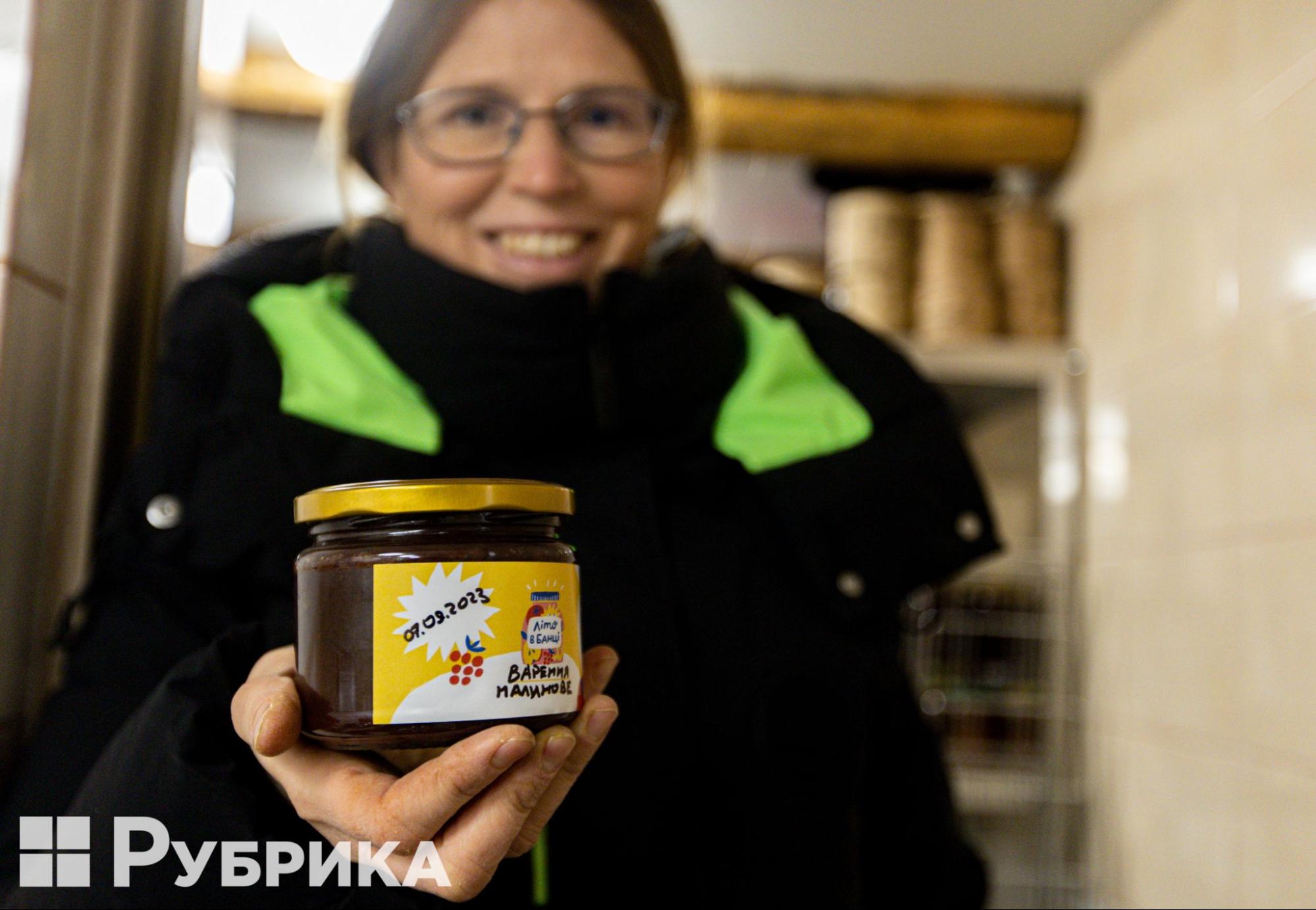
Anastasia holds the results of their production.
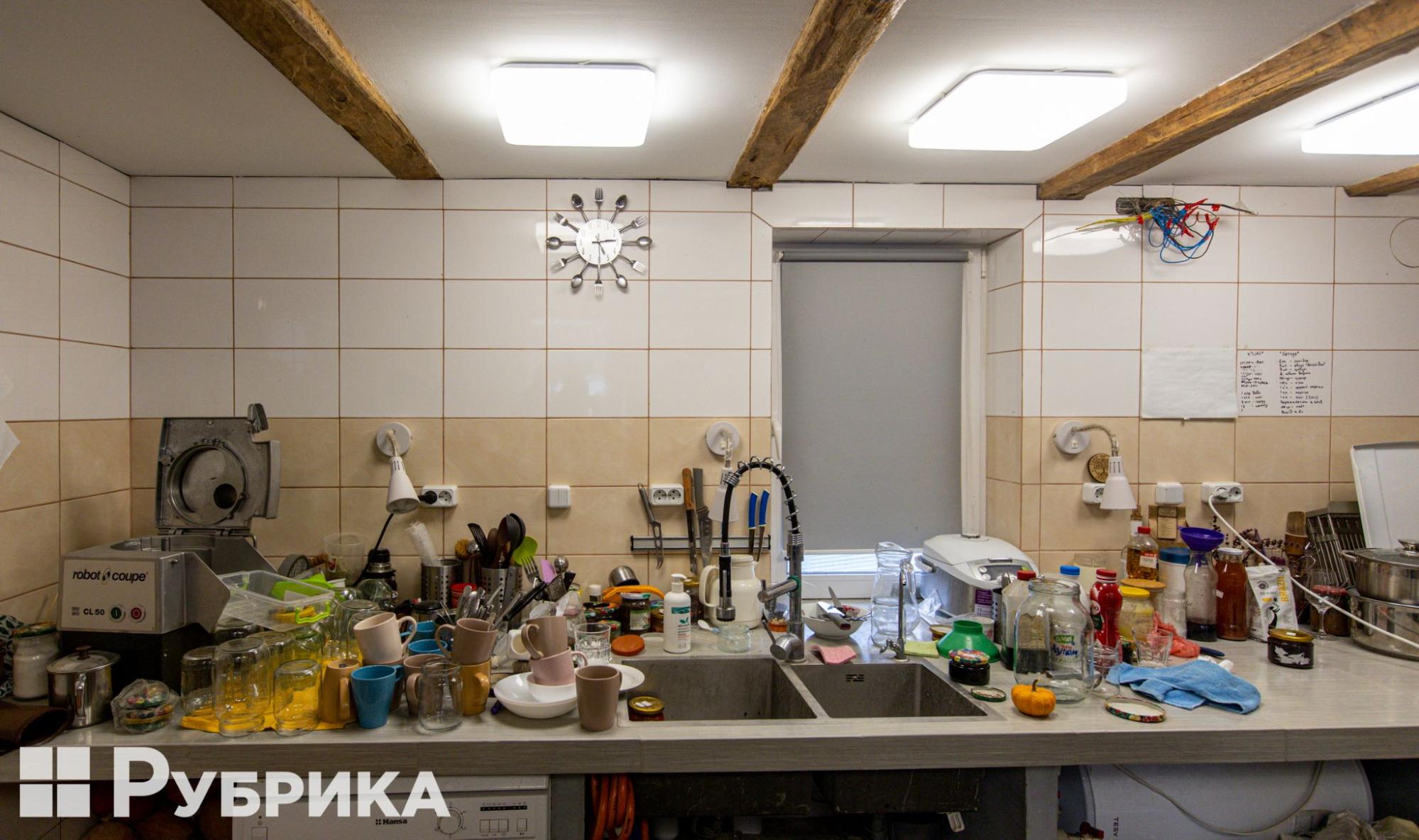
The kitchen where the main processes take place.
The Volkov family and their friends took courses in business planning and marketing and learned how to grow vegetables according to the principles of permaculture. This approach teaches how to conduct agriculture without harming the environment: to organize beds that do not lead to land degradation, expand ecosystems where everything (insects, plants, soil, etc.) is interconnected, and not use pesticides or herbicides.
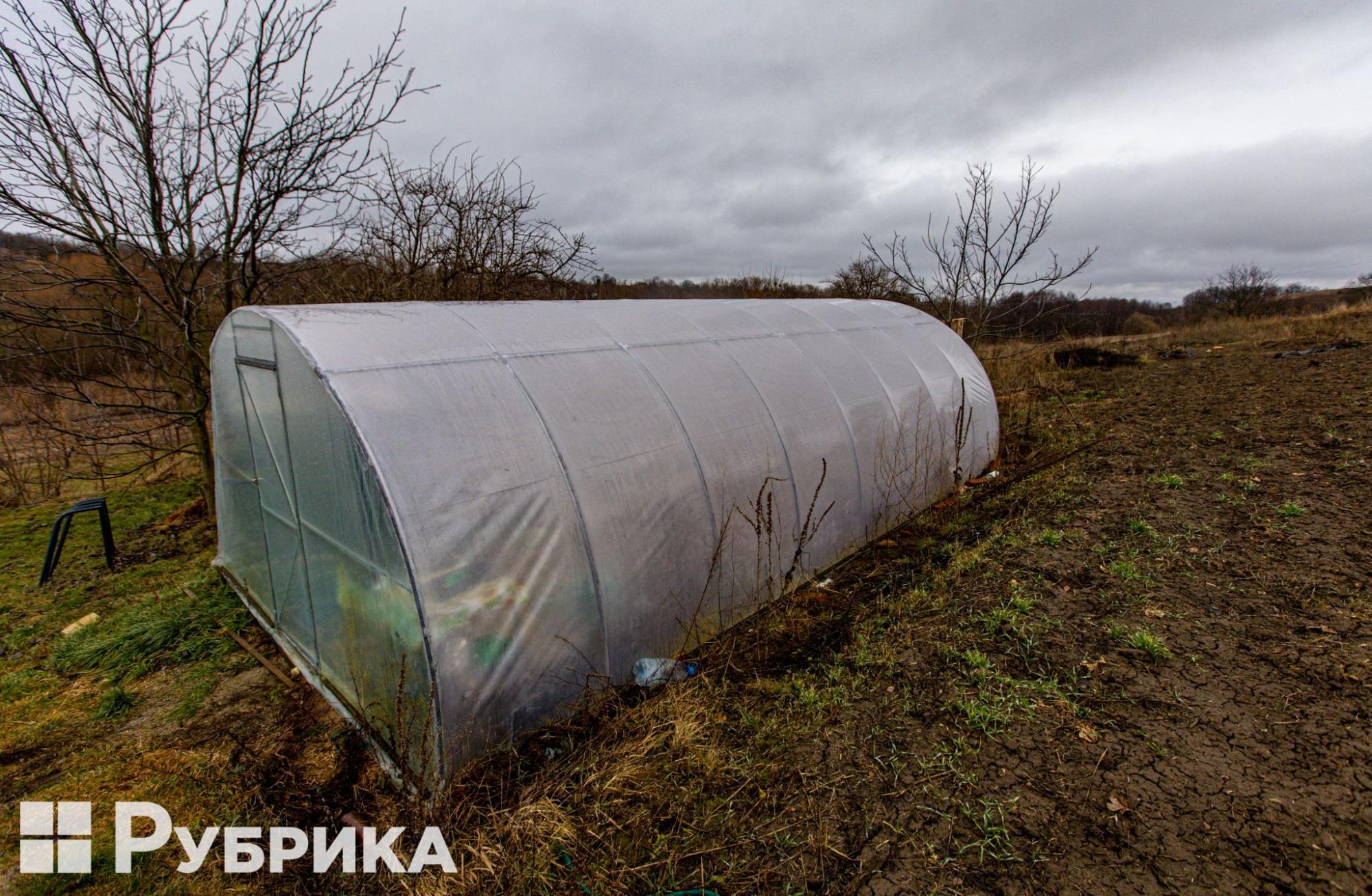
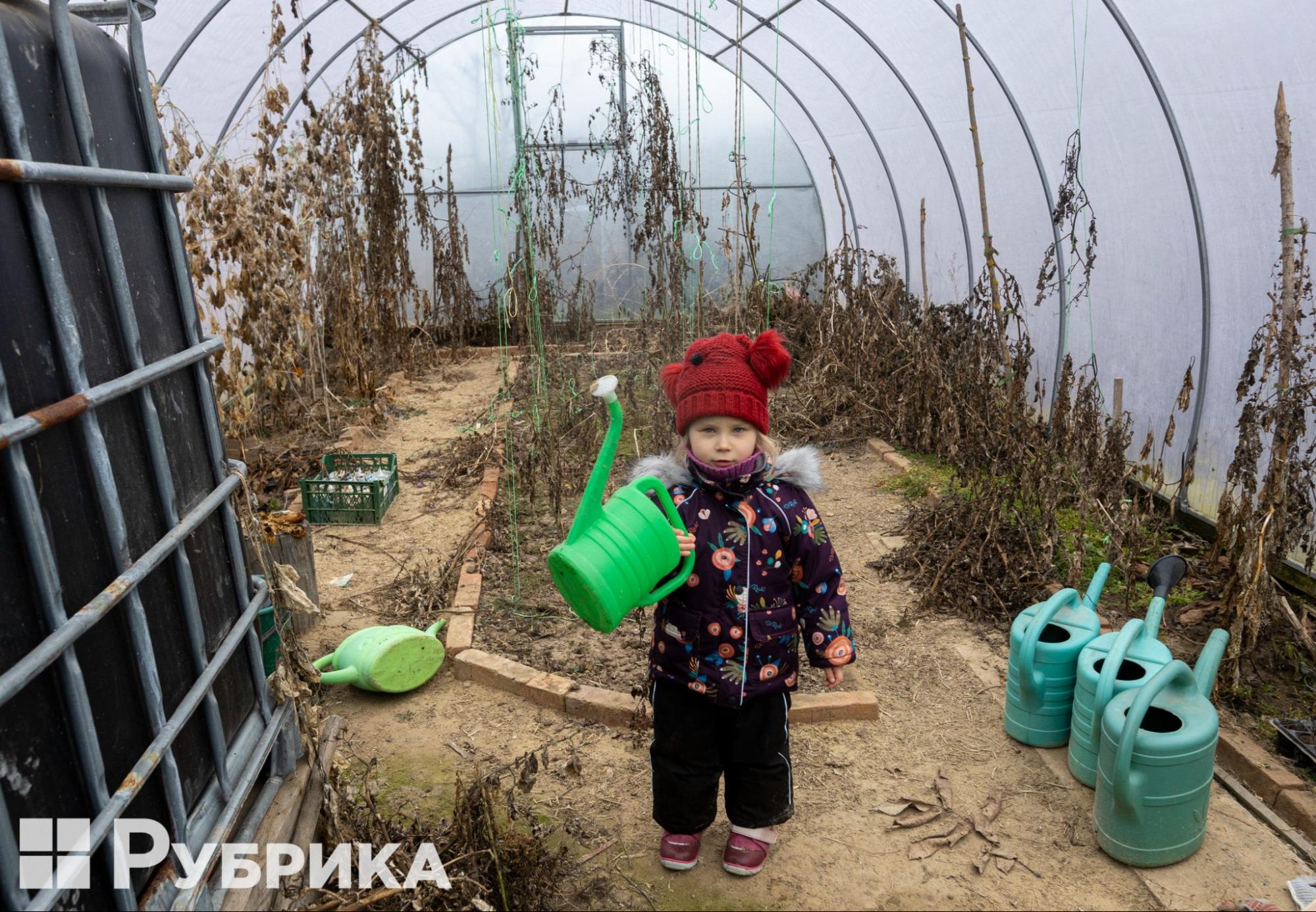
A greenhouse in which vegetables will soon be grown.
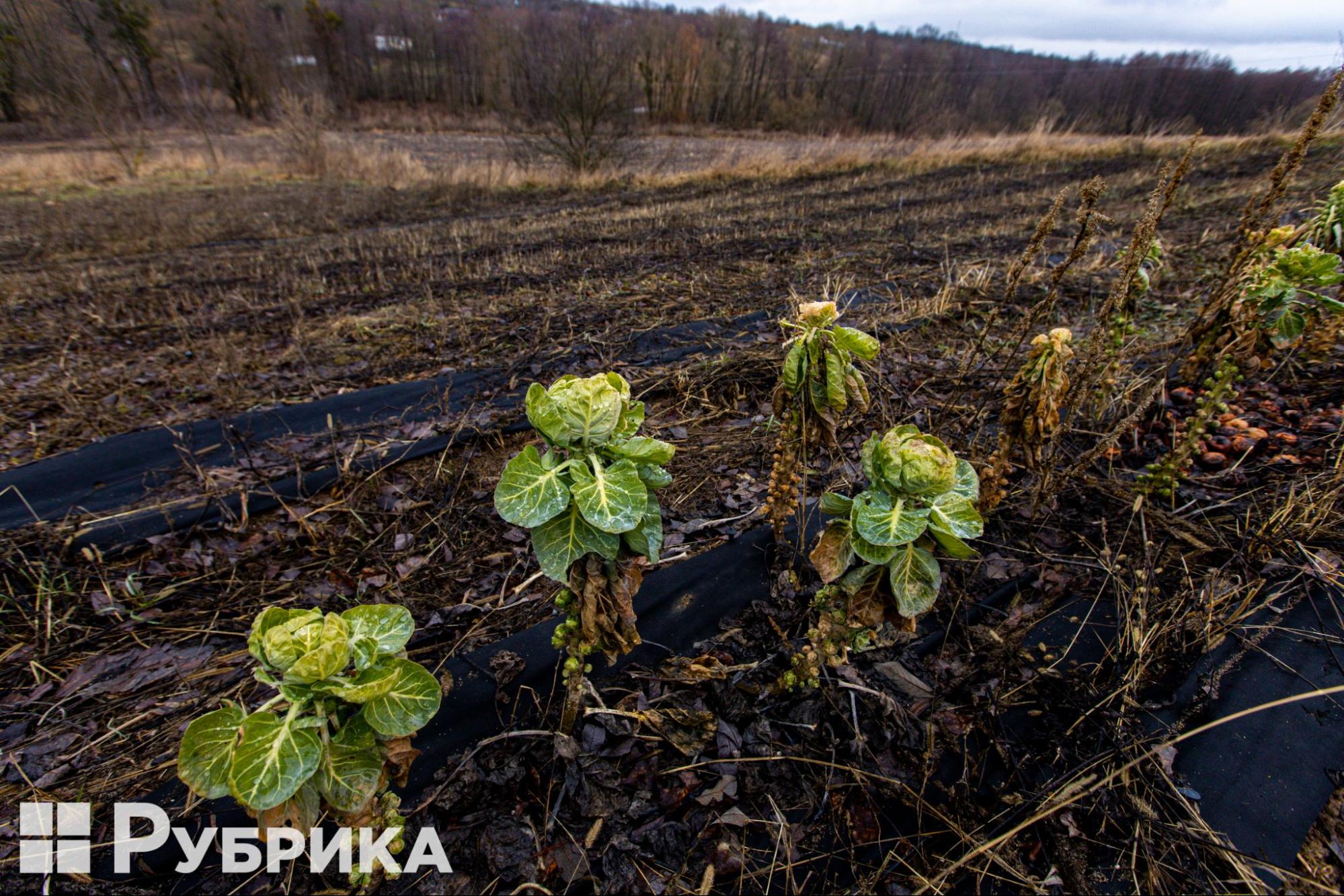
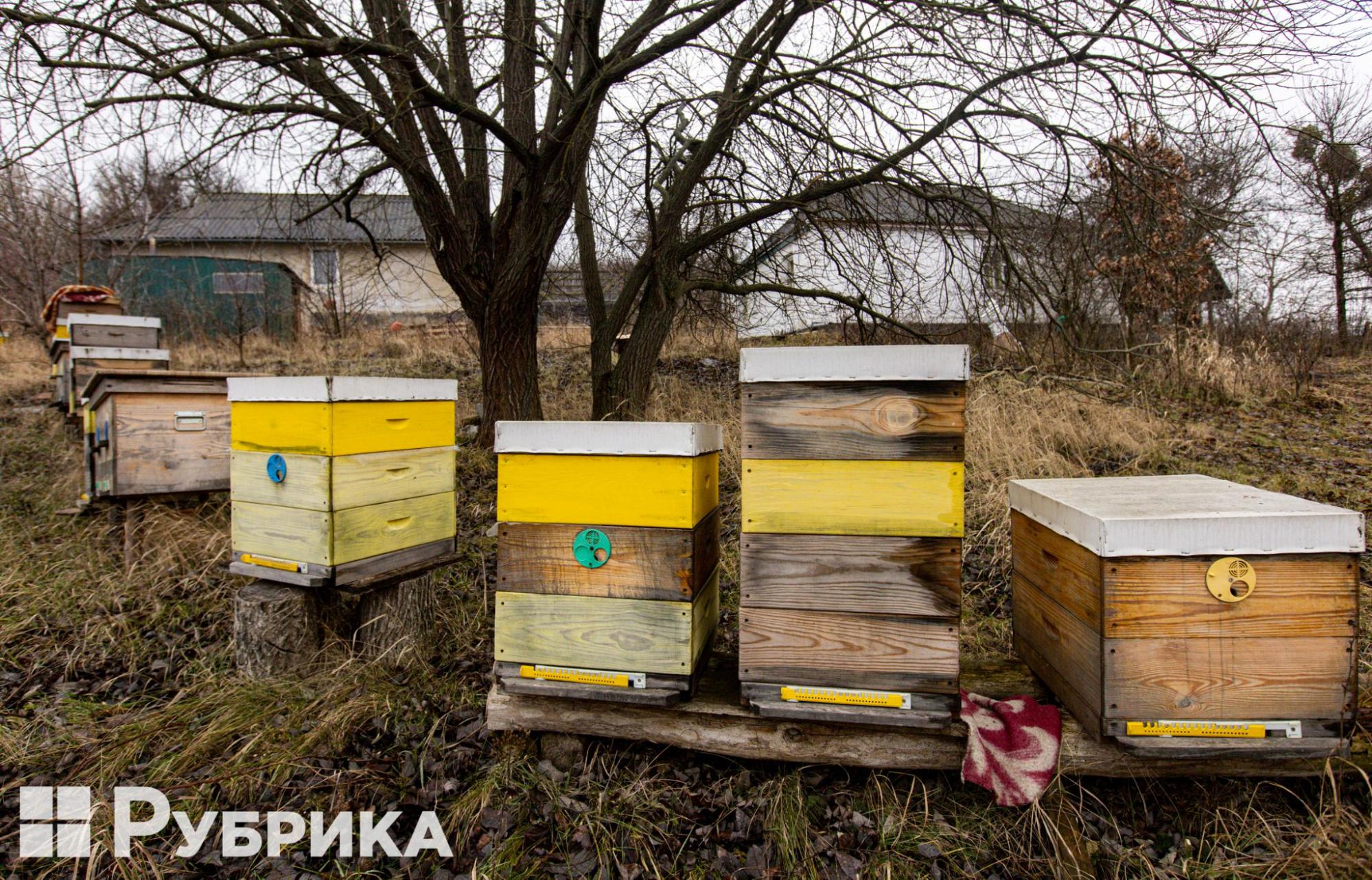
Volkova explains that they are trying to make a sustainable system that would support itself without using chemicals. Like in nature, where birds fight pests, or mixed plantings, where plants planted next to each other seem to "hide" other crops from pests. The family understands that it will not be possible to completely protect the vegetable garden without strong drugs. Still, they are ready for it and know that these are natural processes.
"Here, nature is so rampant that we are calm about the fact that some part will have to be given away one way or another," says the entrepreneur.
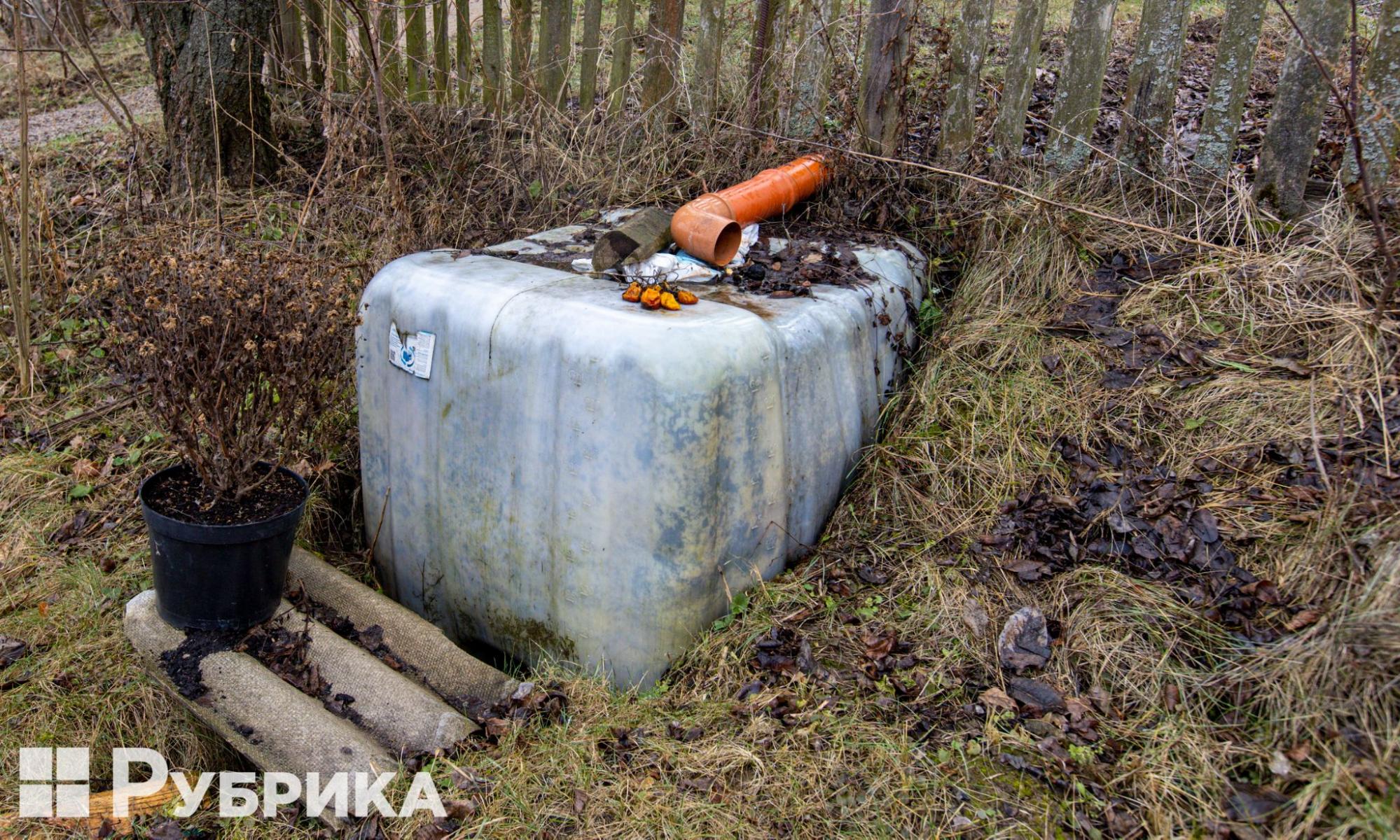
A container in which rainwater is collected.
Before launching the project, the founders received a grant, thanks to which they purchased some of the necessary equipment. Volkova says that at the beginning, they were prepared for a small profit, but, to their surprise, by the beginning of the new year, most of the products were sold out through the project's social networks.
Non-formal education
Environmental communities devote much effort and time to non-formal education for children and adults. Kamila Nilsson, a representative of the Danish eco-settlement, with which the Ukrainian communities closely cooperate, adds that non-formal education does not replace but reinforces formal education; it allows giving children soft skills they will need in life.
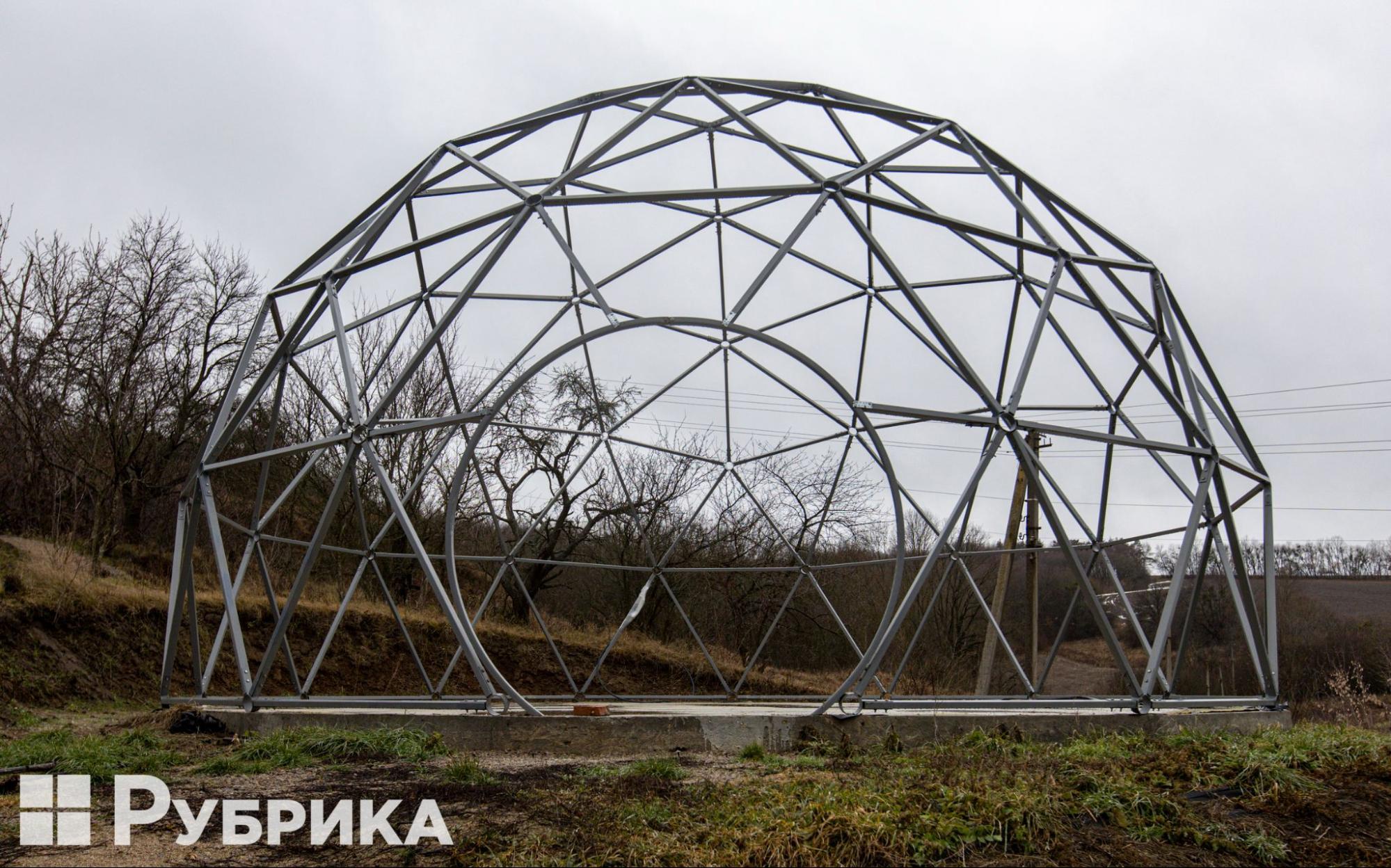
The dome in which events are held in Dmytrenky during the warm season.
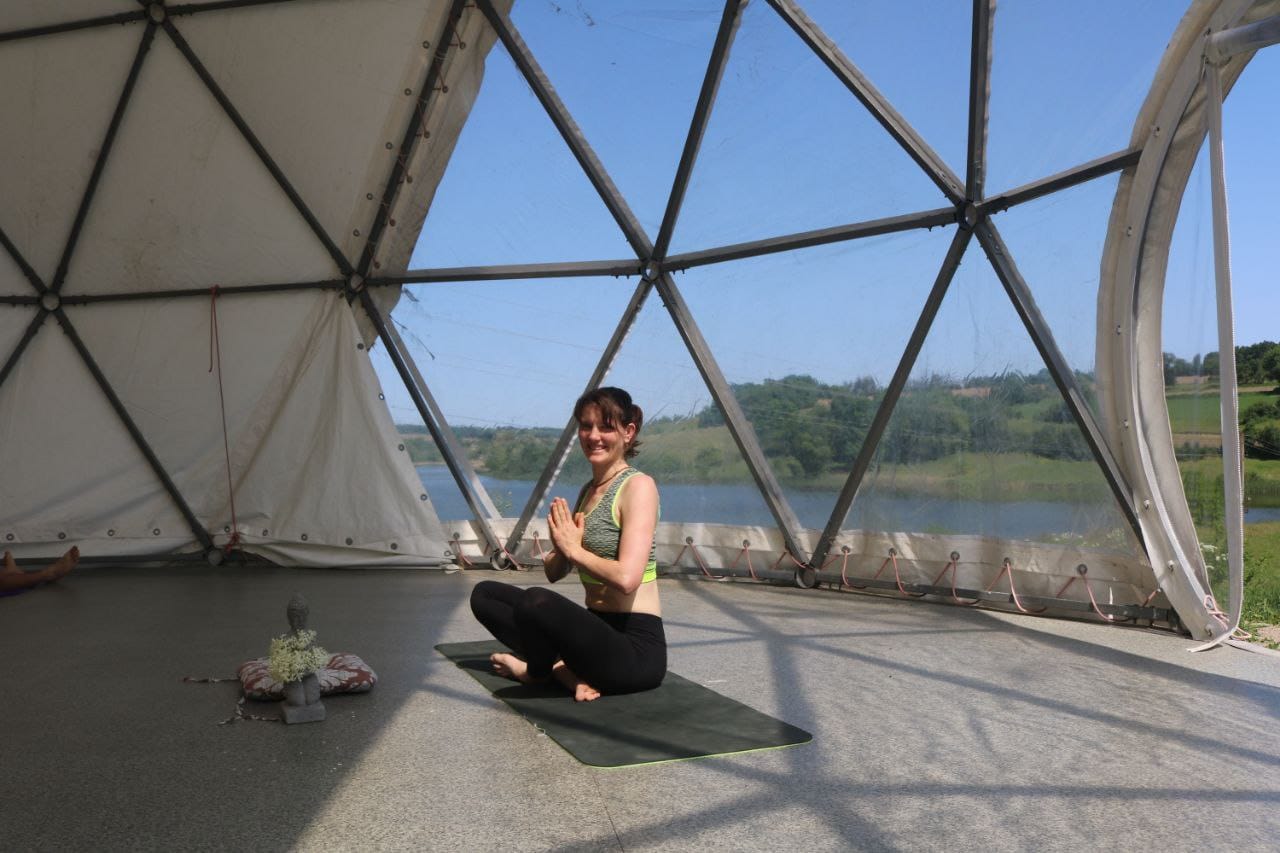
View of the dome in summer.
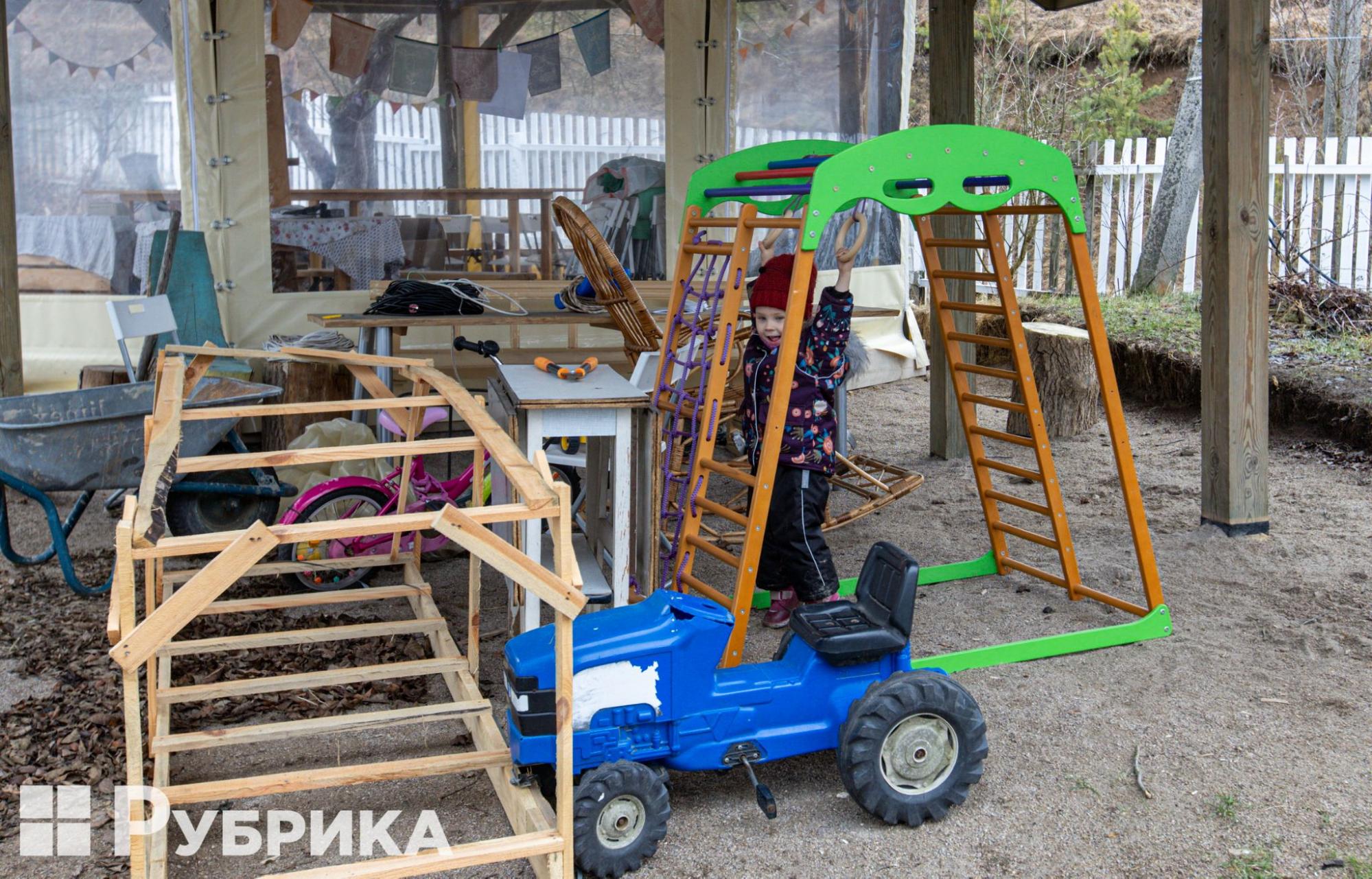
Joint children's attractions.
In the summer, trainings, outings, retreats, and games for children take place here. In the winter, at the base of Zeleni Kruchi, residents have organized their kindergarten, where children play, paint, and sculpt.
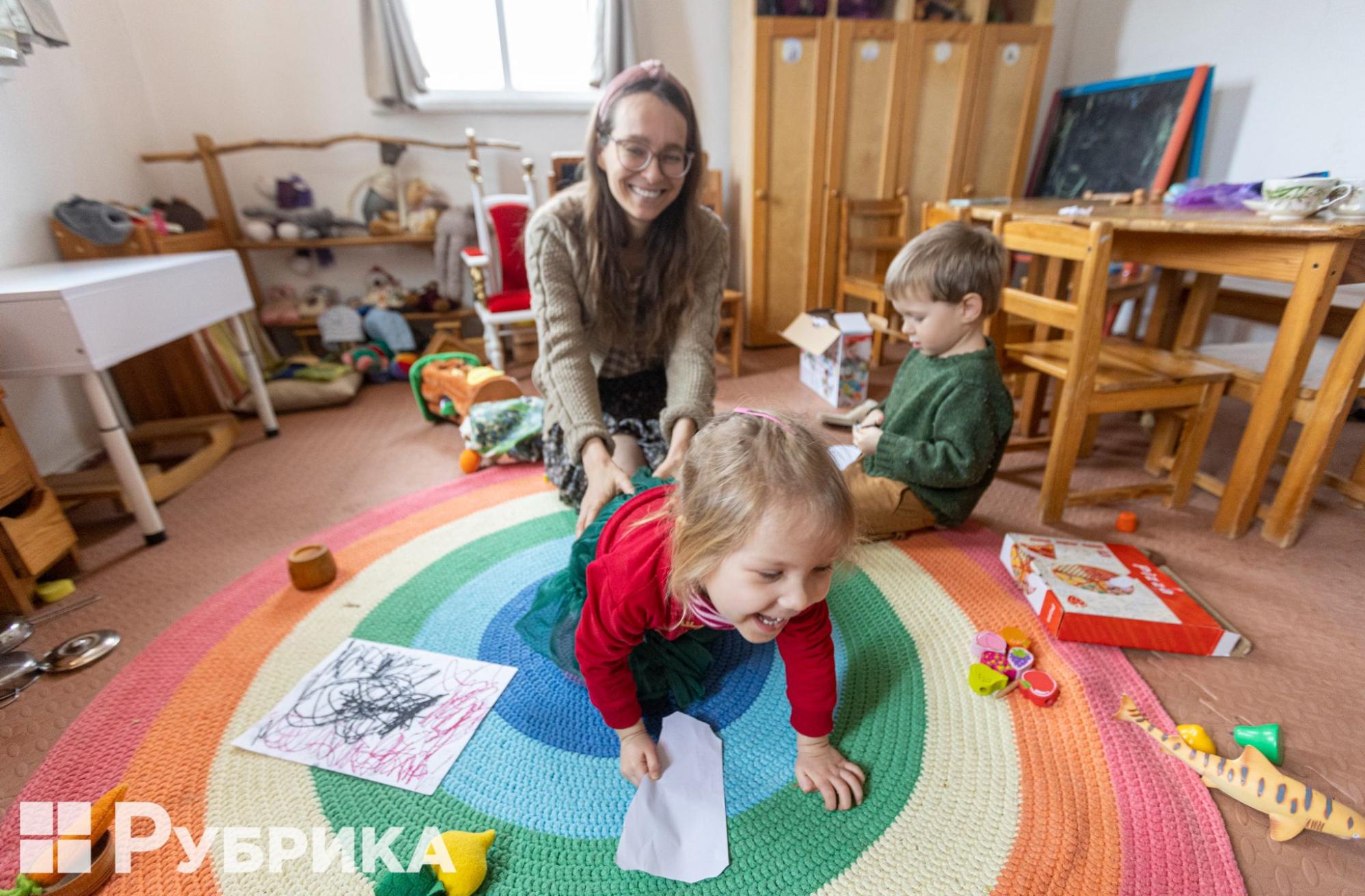
Volkova says that such a decision was not made with the desire to replace an ordinary kindergarten but to minimize risks and travel time because, because of the war, children spend up to three hours in the institution before returning home.
"The difference between ours and an ordinary kindergarten is that here you can shout, climb, jump, and have more freedom," says Volkova. The families bought educational toys and stationery, insulated and decorated the room, and currently have four small attendees.
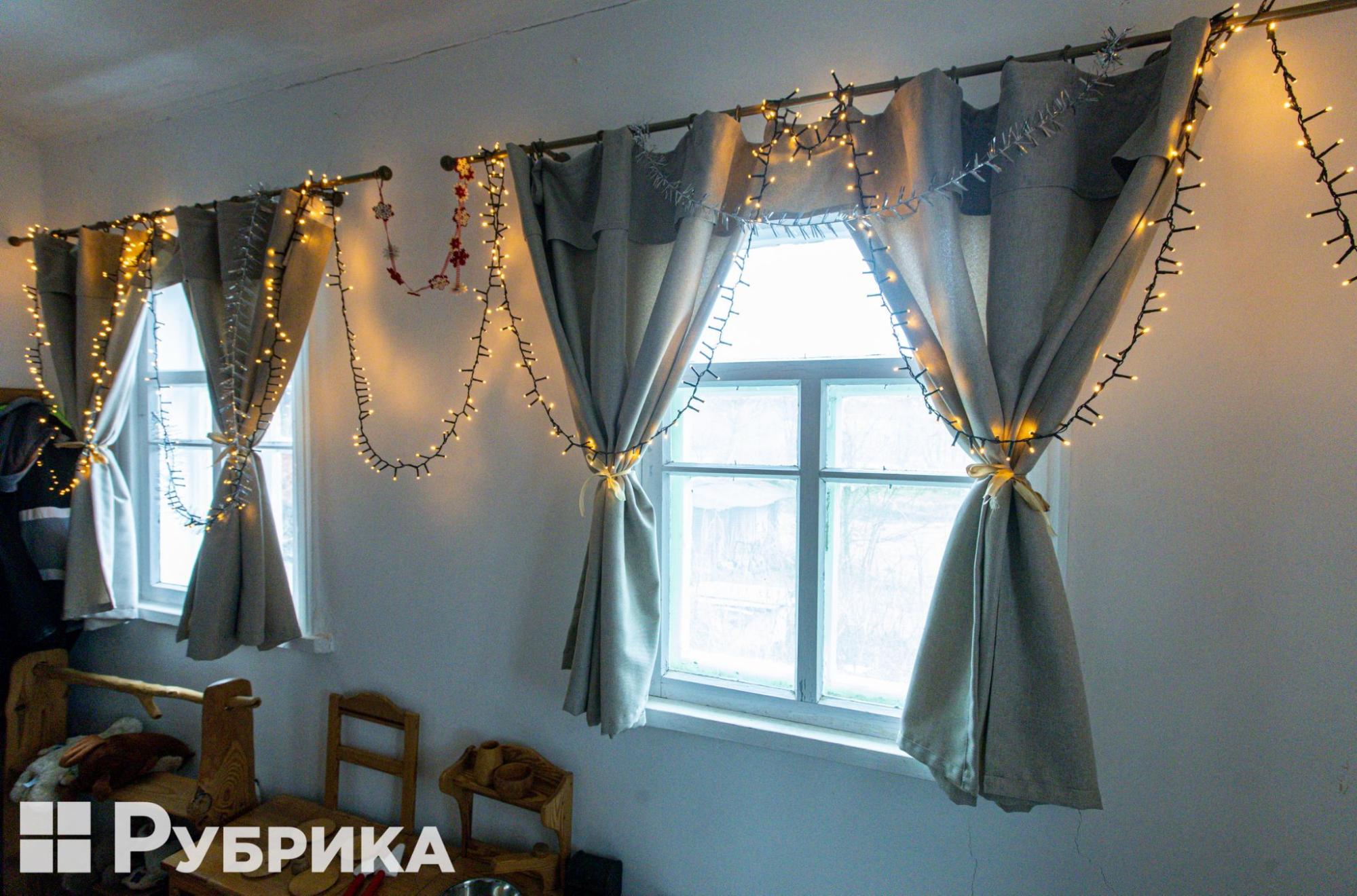
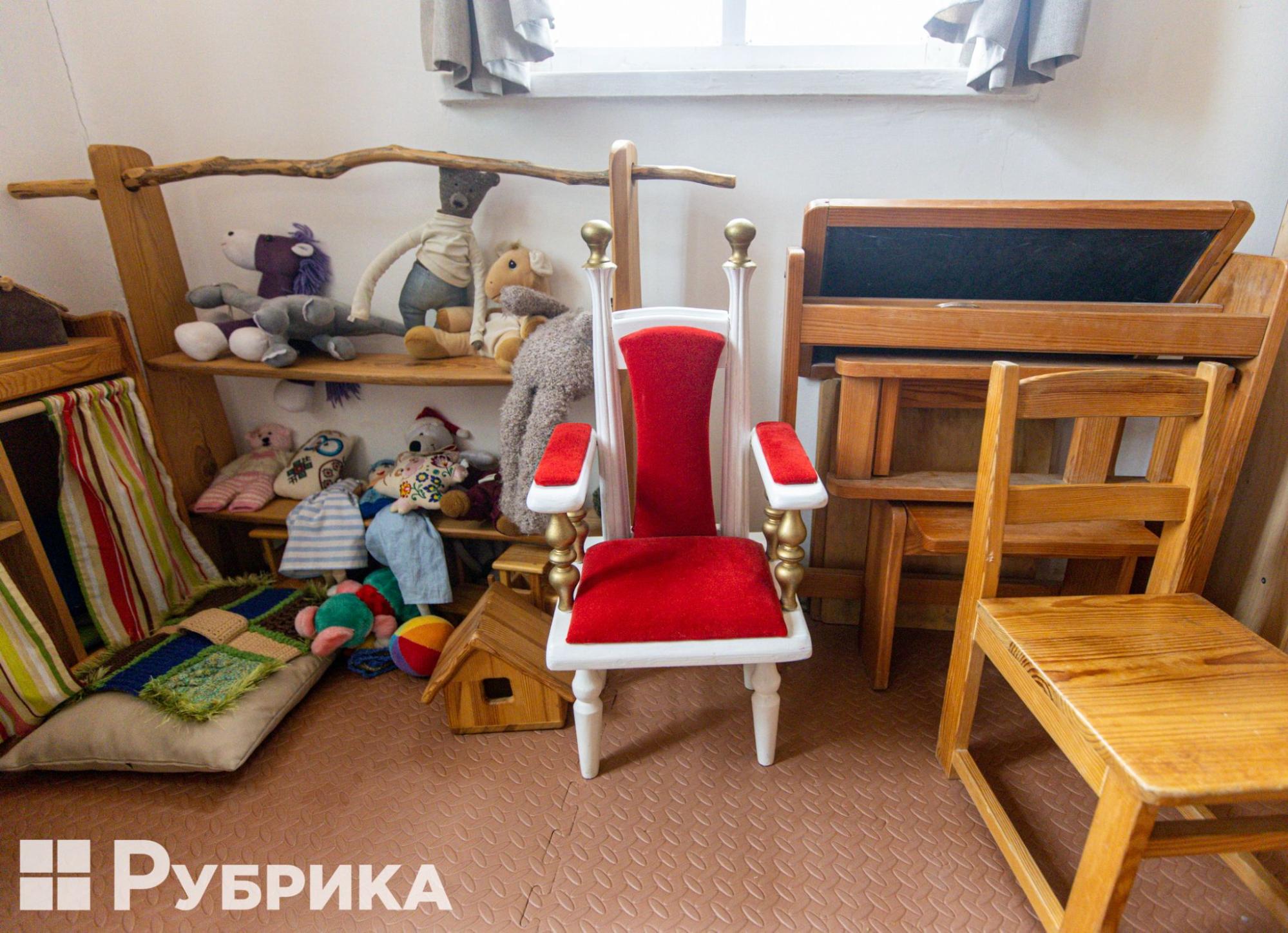
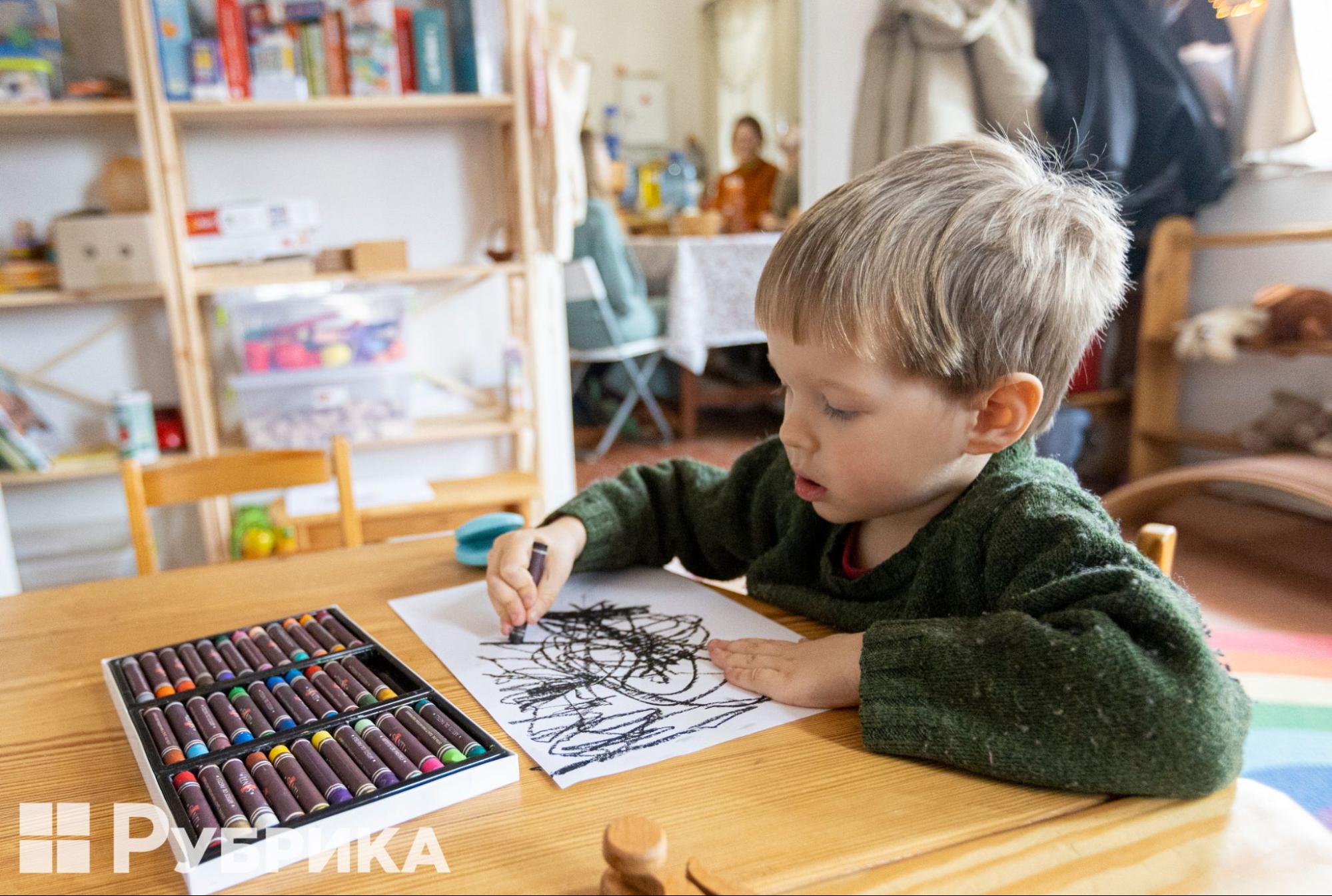
How does it work in other countries?
The "Global Network of Eco-villages of Ukraine" is part of the large European network GEN Europe. Close friends of the Ukrainian settlements are the settlements in Denmark, which are still considered the most successful in the world.
Kamila Nilsson says that, as in Ukraine, eco-settlement is a phenomenon in rural areas. However, ecological communities are not about isolation from the rest of the world but about an alternative. In Denmark, this movement gained so much popularity that it became a business. Nilsson jokes that she would never have thought they would become part of capitalism.
Danish settlements are not located in the village but are separately near it, developing their infrastructure. There is a common house where the residents hold parties and share meals. In eco-villages worldwide, great emphasis is placed on community building, the development of shared values, and sociocracy, a form of governance with no clearly defined authority, and each participant has a voice.
Nilsson adds that the country is considering whether such settlements can solve the problems of loneliness and unhappiness of people. After all, according to statistics, only 85,000 older people in Denmark want to live in eco-villages because they are lonely. If, in the cities, they remain alone, then they become a part of a built-up community. The Danish authorities are interested in developing such a social structure, so the Ministry of Social Policy has created a consultation department for those who want to live in eco-settlements.
Volkova says it is a standard practice to exchange experiences between settlements of different countries, so they often visit each other. When you come to them, you are always impressed by the infrastructure. Their settlements have more financial opportunities, and many settlements were created by people who put their investments there, which is quite difficult for us. "Most of our communities do not have common infrastructure or large common houses," Volkova shares.
The most successful eco-settlement has been around for 30 to 40 years, while the Ukrainian one is only 10. "We're already doing well. I think that in 20 years, we will have the same thing," adds Volkova. Despite the war in the country, undeveloped rural infrastructure and transport links, a certain bias towards rural areas, and other problems, Ukraine's eco-settlements are moving and setting an example, even to foreign friends, how, in times of turbulence, one can not only develop a community but and take care of the environment.
Volkova says: "The most important thing is people. Without them, all this would not be possible. I love our community, and I feel comfortable with my people."
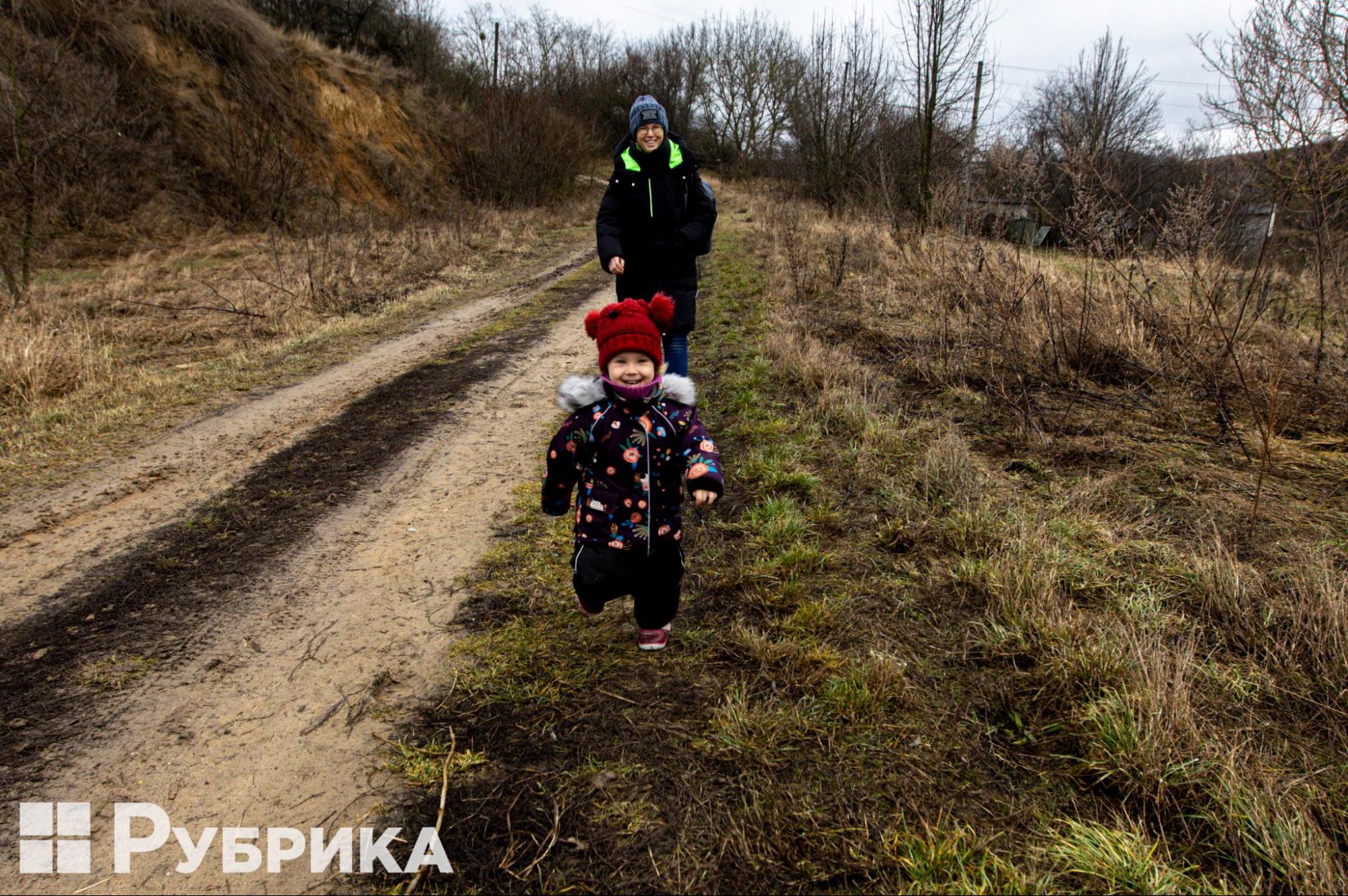
Newsletter
Digest of the most interesting news: just about the main thing






